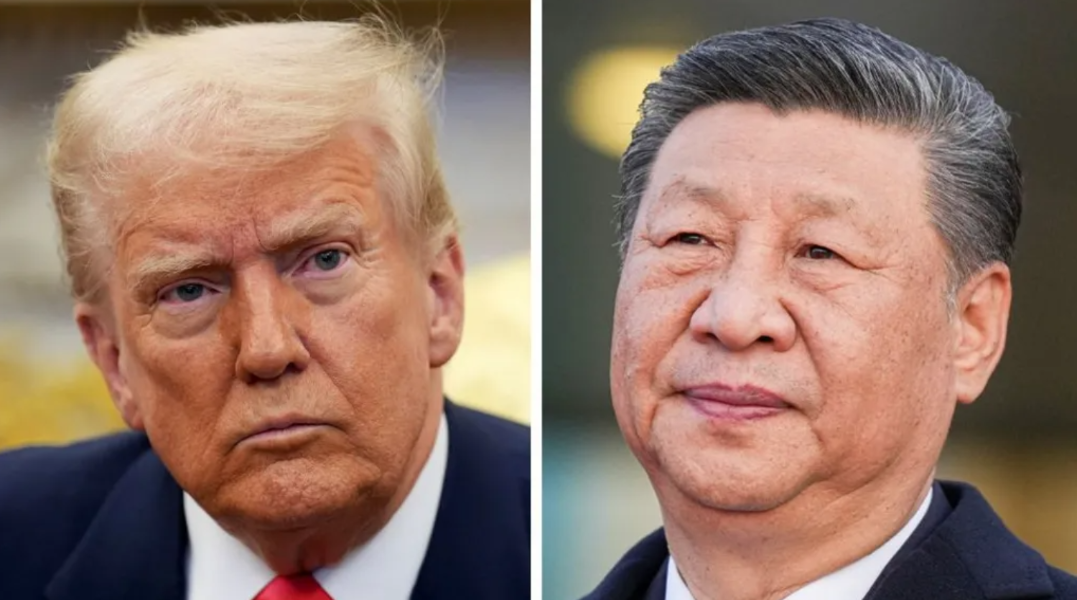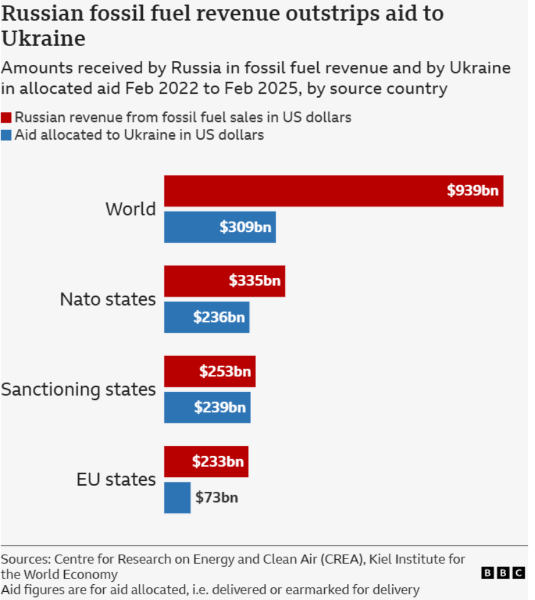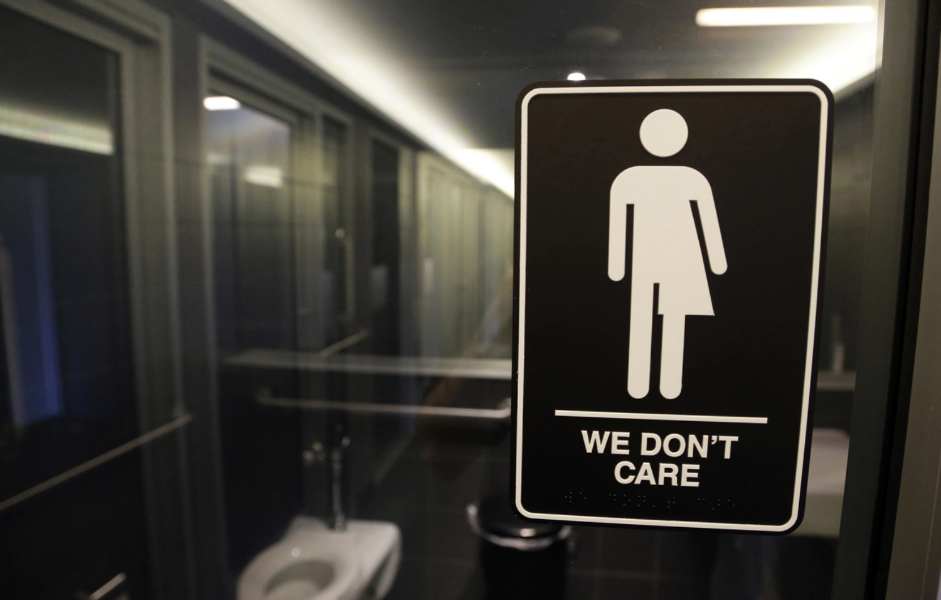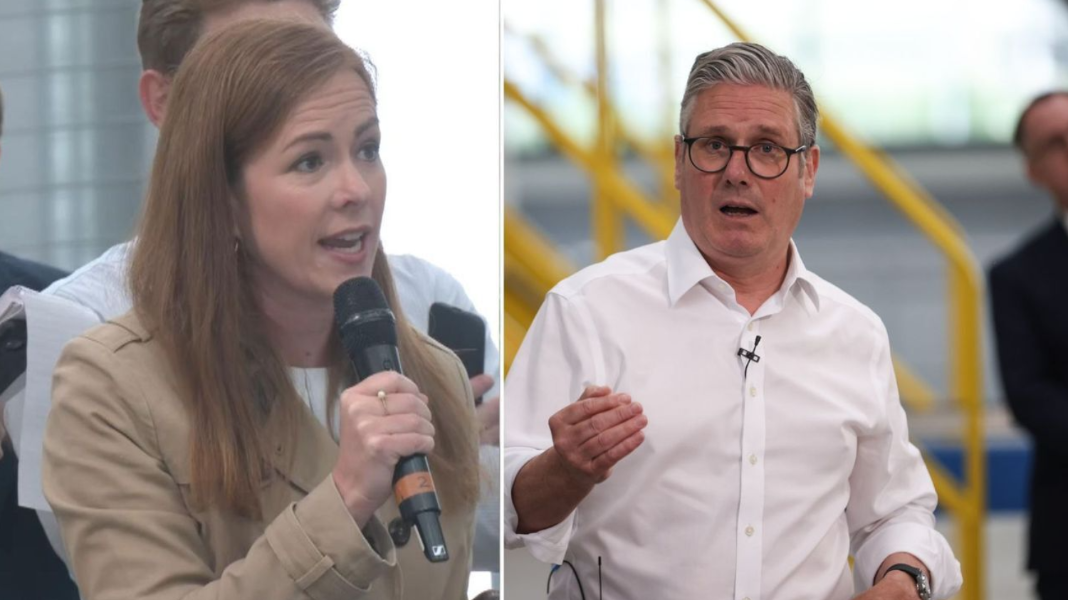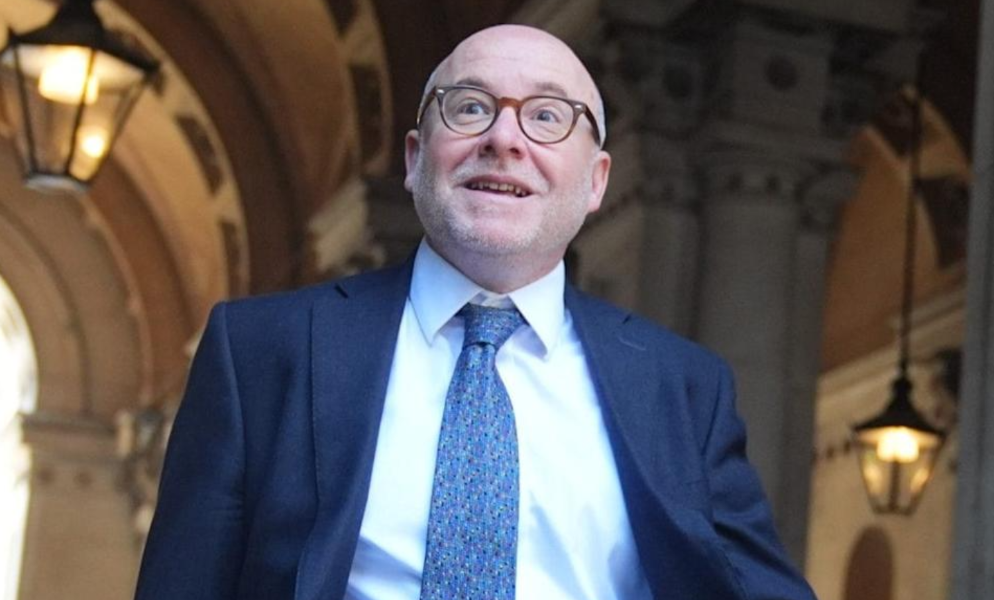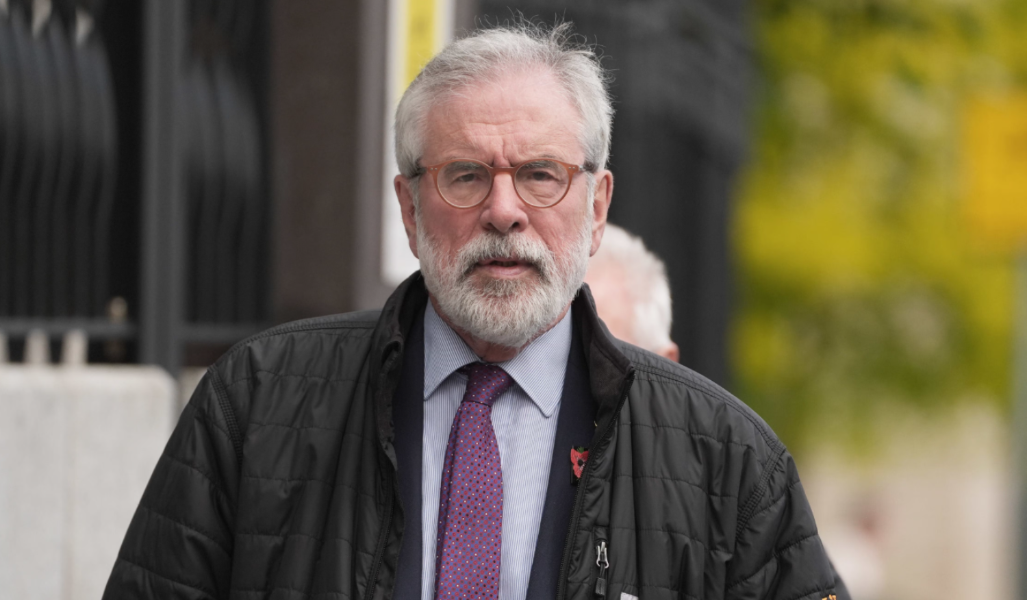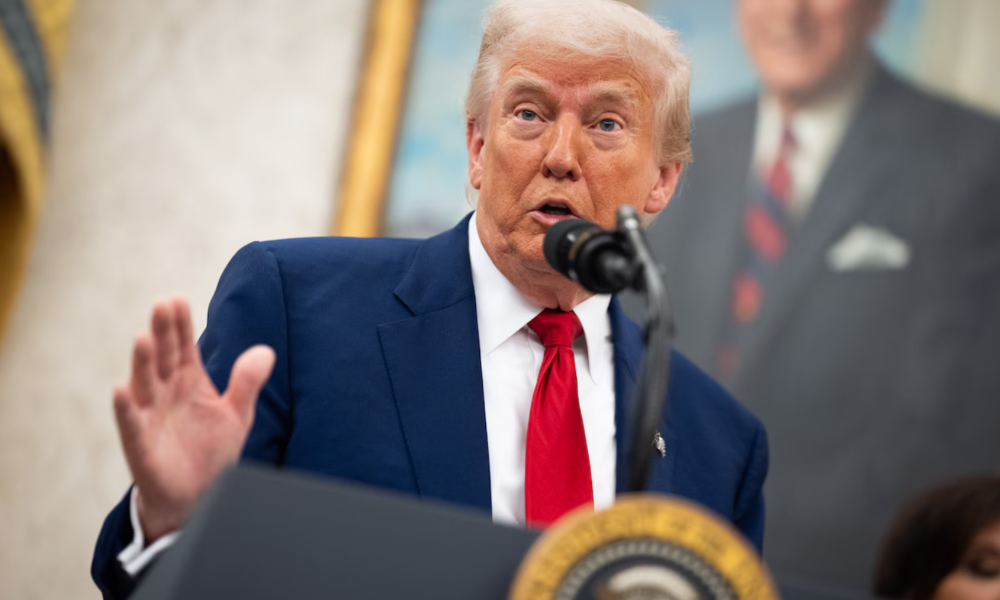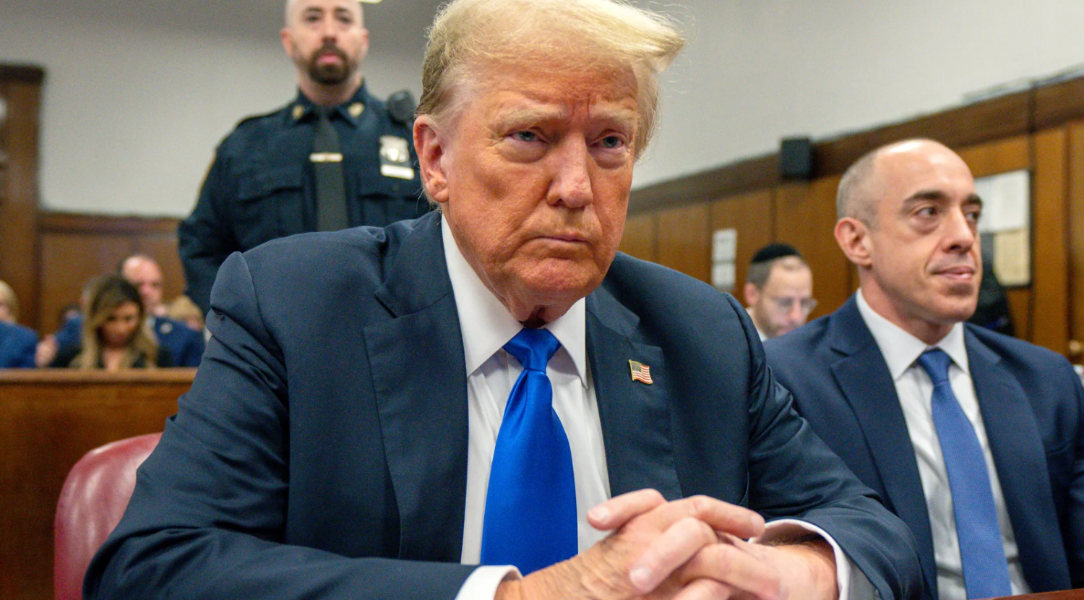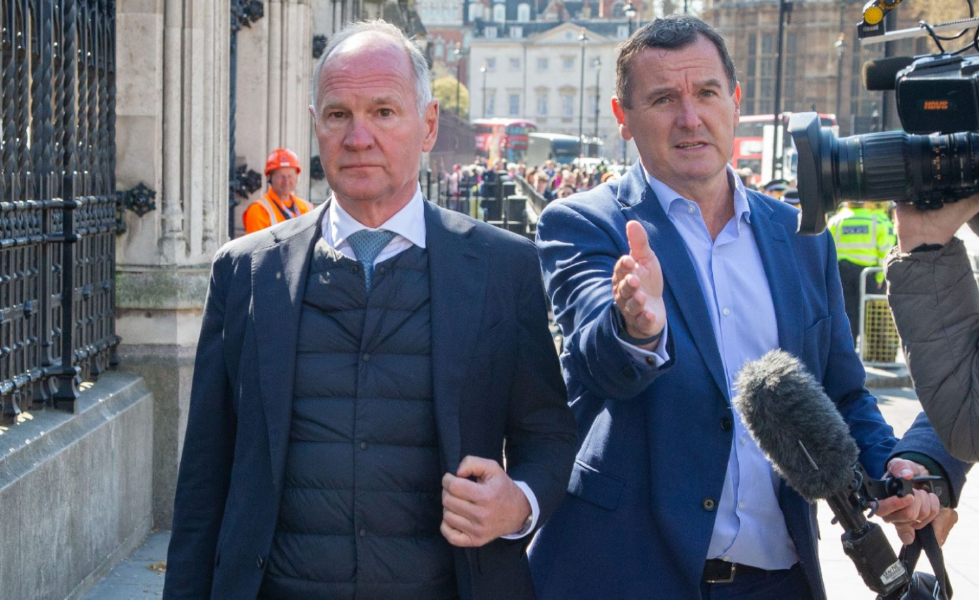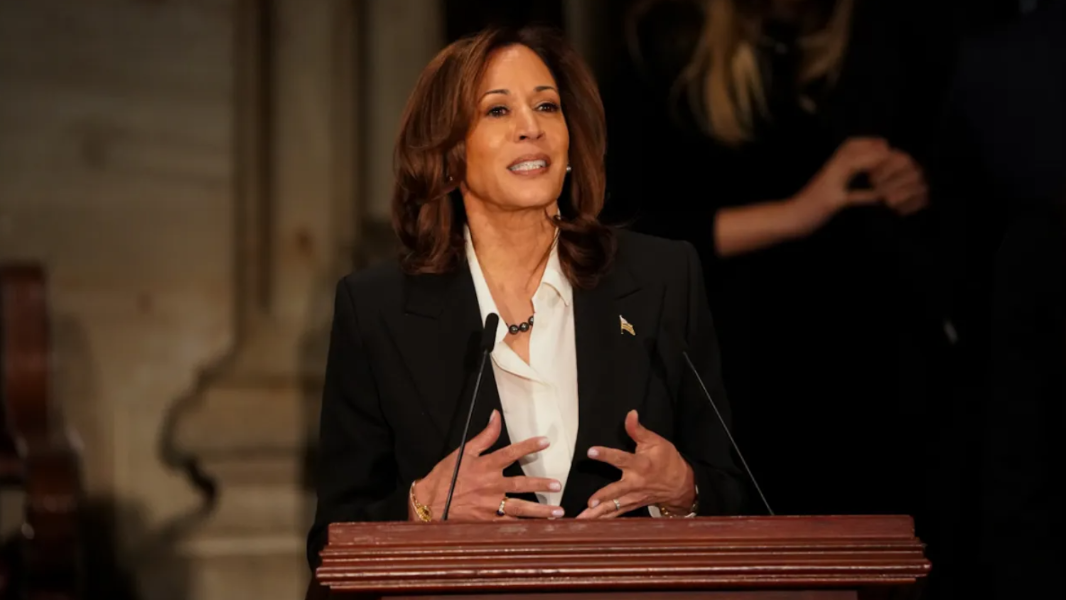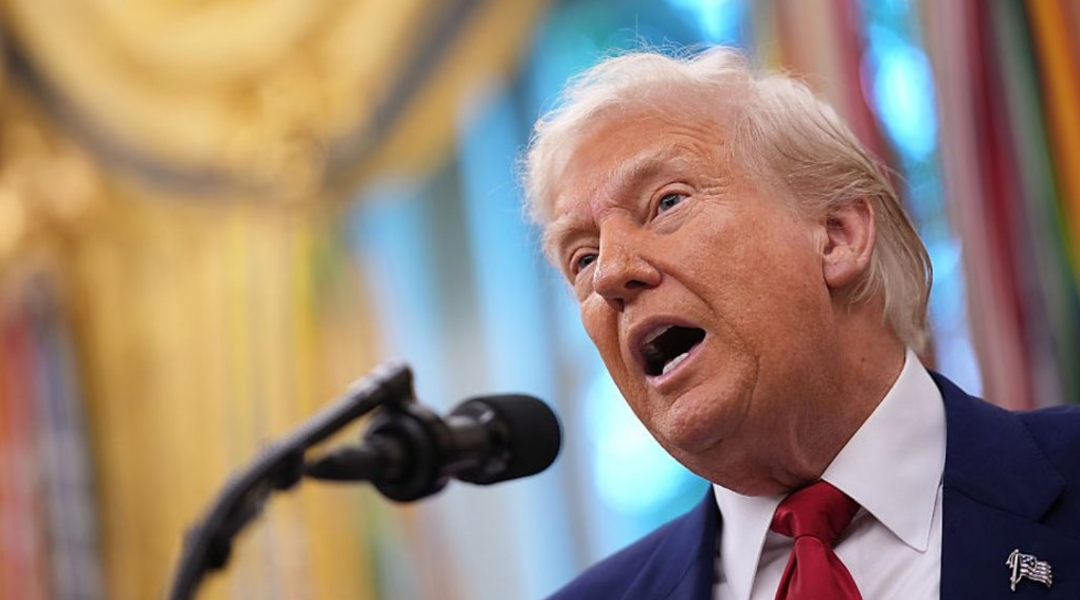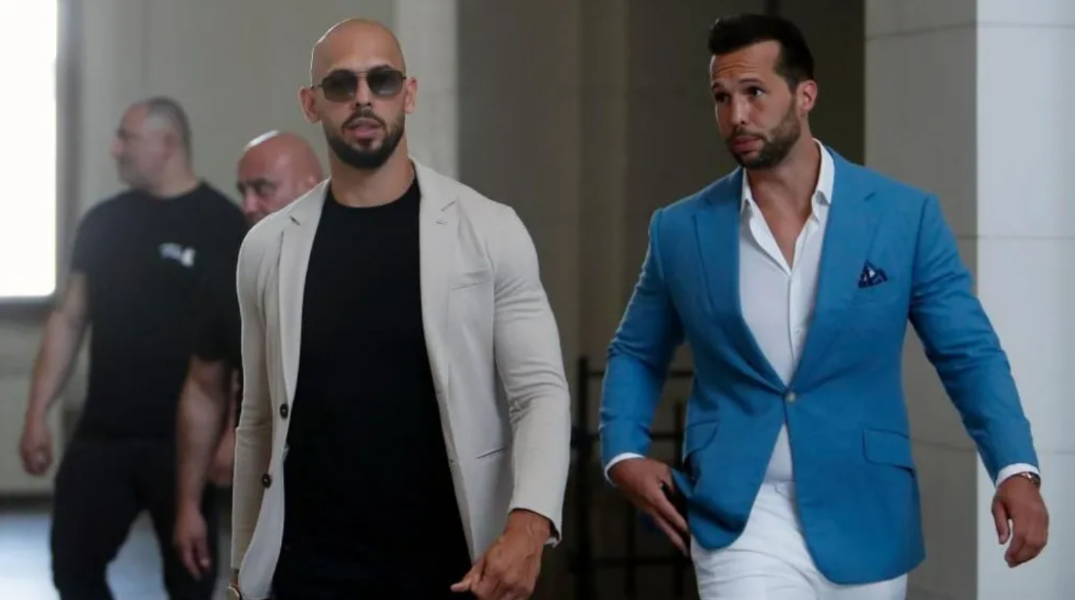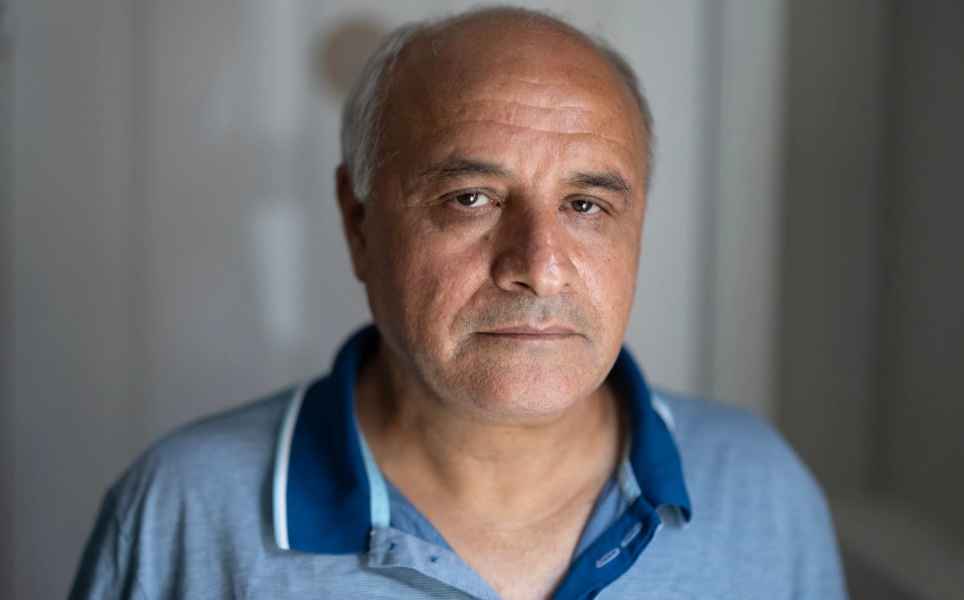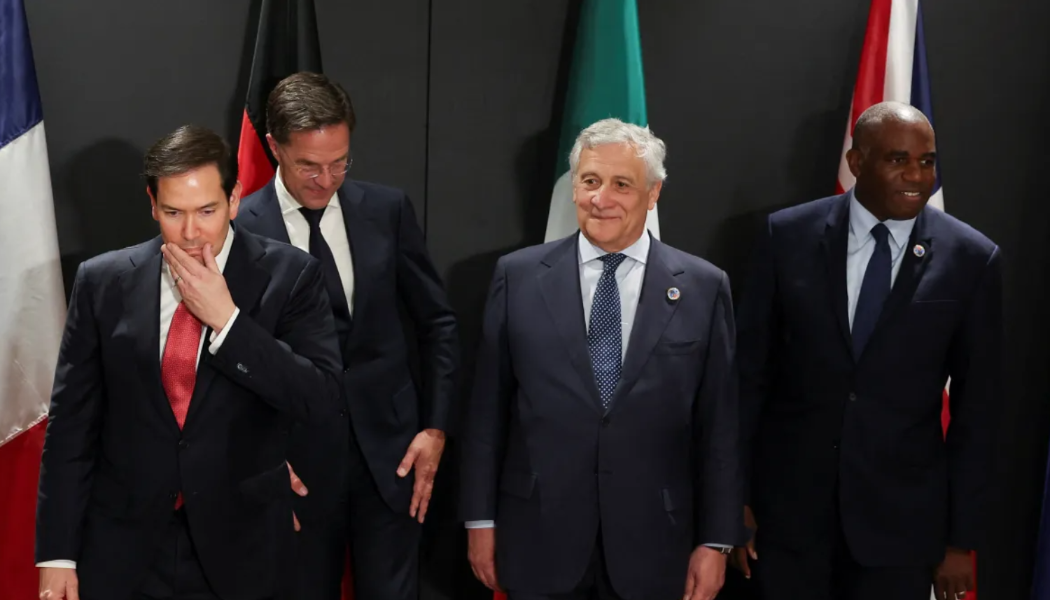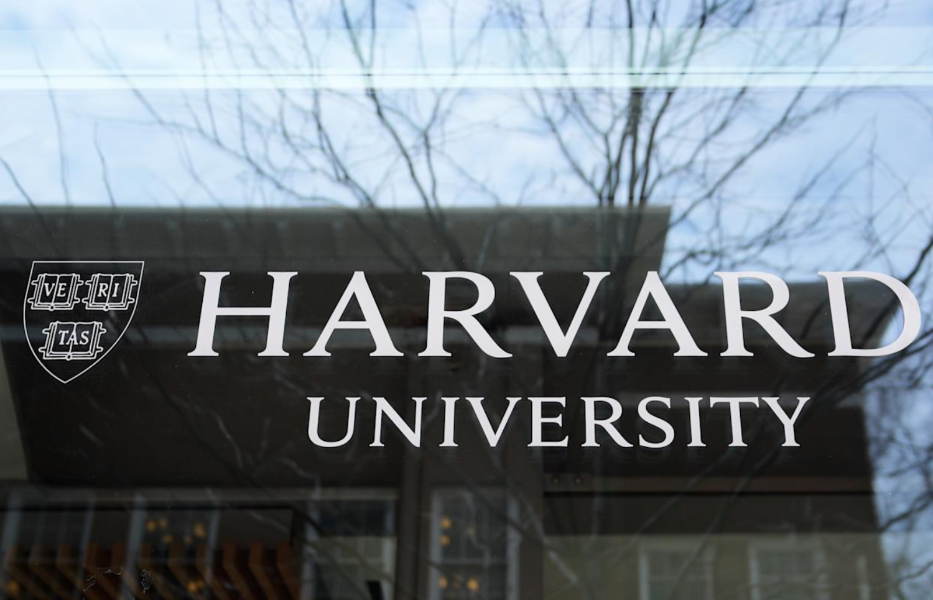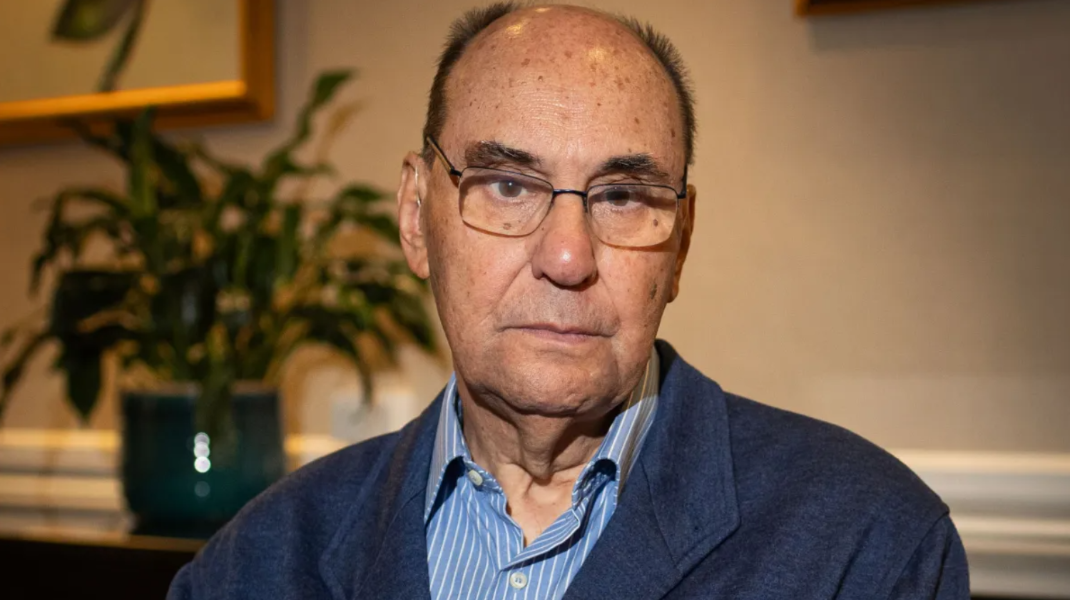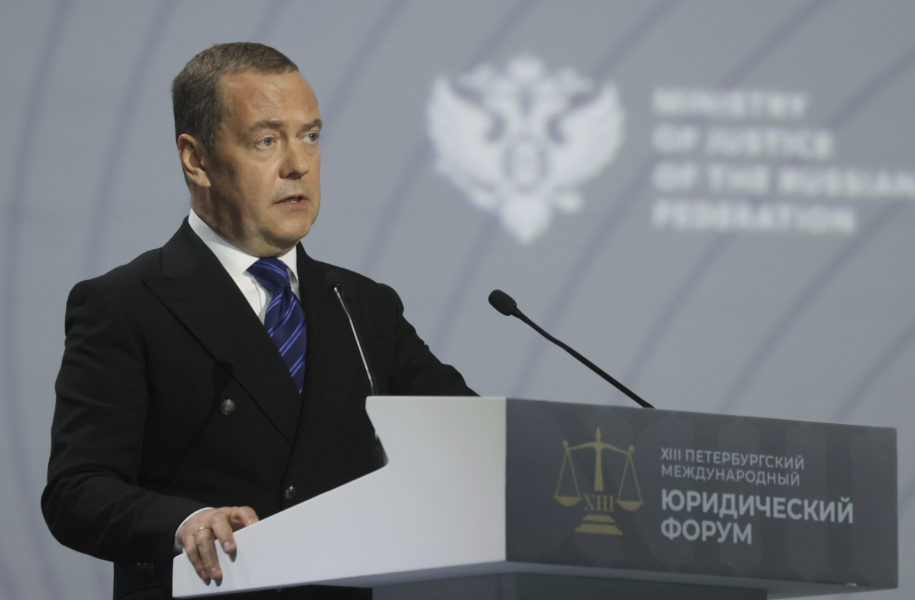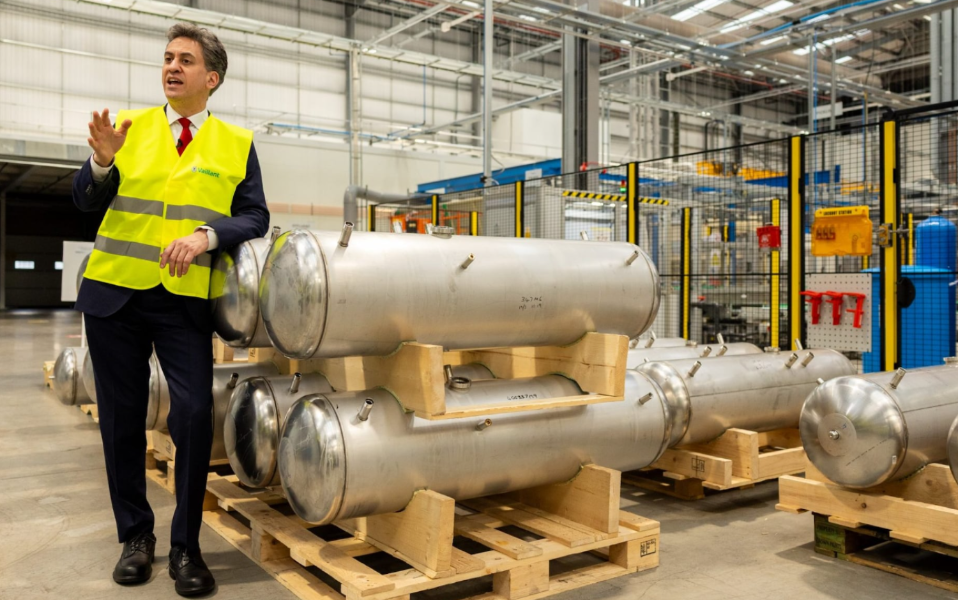-
Posts
10,790 -
Joined
-
Last visited
Content Type
Events
Forums
Downloads
Quizzes
Gallery
Blogs
Everything posted by Social Media
-
Trade Talks Between US and China Hit a Snag, Says Treasury Secretary Trade negotiations between the United States and China have stalled, according to US Treasury Secretary Scott Bessent, casting doubt on the recent optimism surrounding progress in the economic relationship between the world’s two largest economies. Less than three weeks after a temporary truce saw both nations agree to roll back certain tariffs, Bessent confirmed on Thursday that talks have lost momentum. “I think that given the magnitude of the talks, given the complexity, that this is going to require [leaders of both the countries] to weigh in with each other,” Bessent said in an interview with Fox News. His remarks come as a reality check following the announcement of a tentative agreement reached earlier this month in Switzerland, which aimed to ease tensions by canceling some tariffs and suspending others for a 90-day period ending May 14. The trade detente had been seen as a step forward after years of escalating tariffs, particularly during Donald Trump’s administration, which had imposed aggressive import taxes on a broad range of Chinese goods. However, the momentum appears to have waned, and further progress is now uncertain. The temporary deal had seen the United States reduce tariffs on Chinese imports from 145% to 30%, while China lowered its retaliatory tariffs on US goods from 125% to 10%. Despite this mutual concession, the road to a more comprehensive agreement appears rocky. Bessent emphasized that discussions are still ongoing but acknowledged that the pace has slowed. “I believe that we will be having more talks with [China] in the next few weeks and I believe we may at some point have a call between the president and [Chinese President Xi Jinping],” he said. He also noted the importance of direct engagement between the leaders, suggesting it could be key to reigniting progress. According to Bessent, President Trump and President Xi maintain “a very good relationship,” and he expressed optimism that Beijing would respond to Trump’s involvement. “I’m confident that the Chinese will come to the table when President Trump makes his preferences known,” he added. Meanwhile, Trump’s broader tariff strategy faced legal challenges this week. A court ruling determined that he had exceeded his authority in implementing certain trade measures, delivering a setback to his administration’s trade policy. The ruling has been temporarily suspended following an appeal by the White House, allowing the tariff plans to continue for now. While the recent developments suggest a possible opening for renewed dialogue, the stalling of formal negotiations underlines the ongoing complexity of the trade relationship. With the 90-day suspension of some tariffs due to expire soon, and with high stakes for industries on both sides, the next few weeks may prove pivotal in determining whether this temporary thaw can be turned into lasting progress. Adapted by ASEAN Now from BBC 2025-05-31
-
Fueling the War: How Western Money Keeps Russia’s Oil Profits Flowing Despite sweeping sanctions and political condemnation, Western nations have continued to funnel billions of euros into Russia's war chest through the ongoing purchase of fossil fuels. More than three years into the full-scale invasion of Ukraine, data reveals that Russia’s earnings from oil and gas exports have significantly outstripped the financial aid provided to Ukraine by its allies. Since the war began in February 2022, Russia has earned over €883 billion from fossil fuel exports. Of this staggering total, €228 billion came from countries that have officially imposed sanctions on Moscow. The European Union alone accounts for €209 billion of that sum, underscoring the continent’s continued reliance on Russian hydrocarbons. This revenue, according to the Centre for Research on Energy and Clean Air (CREA), has become a financial lifeline for sustaining the Kremlin's military aggression. Oil and gas are critical to the Russian economy, making up nearly a third of state revenues and more than 60% of exports. While the United States and United Kingdom banned Russian oil and gas following the invasion, the EU’s restrictions were partial—banning seaborne crude imports but allowing gas imports to continue. These measures have proven insufficient. Russia’s fossil fuel export revenues fell by just 5% in 2024 compared to the previous year, with crude oil revenues actually increasing by 6% and pipeline gas earnings climbing by 9%. Gas exports to Europe, bolstered by Turkish routes, rose by up to 20%, and half of Russia’s liquefied natural gas (LNG) exports still go to EU countries. EU foreign policy chief Kaja Kallas acknowledged the incomplete nature of the sanctions, stating that some member nations feared potential conflict escalation and were motivated by short-term economic savings. "The strongest sanctions" have not been enacted, she admitted. Meanwhile, campaigners argue that energy dependence has obstructed efforts to effectively cut off Russian war funding. Mai Rosner of Global Witness highlighted the reluctance among Western leaders to further restrict Russian fossil fuels. “There’s no real desire in many governments to actually limit Russia’s ability to produce and sell oil,” she told the BBC. “There is way too much fear about what that would mean for global energy markets.” Compounding the issue is what’s been dubbed the “refining loophole.” This refers to Russian crude oil being exported to third-party nations like Turkey and India, refined into fuel products, and then sold to countries that have sanctioned direct imports from Russia. CREA identified six such “laundromat refineries” using €6.1 billion worth of Russian crude to create fuels for Western markets. India’s petroleum ministry rebuked CREA’s findings as an attempt to "tarnish India's image," but CREA analyst Vaibhav Raghunandan countered, “This is a loophole. It’s entirely legal. Everyone’s aware of it, but nobody is doing much to actually tackle it in a big way.” Former Russian deputy energy minister Vladimir Milov, now a vocal critic of Vladimir Putin, believes enforcement—not new laws—is the issue. He called the G7’s oil price cap “not working” and warned that institutional changes in the US under President Donald Trump could weaken key enforcement bodies like the Treasury and OFAC. However, Milov did note improvements in sanctioning Russia’s “shadow fleet” of tankers used to circumvent restrictions. “That is a complex surgery operation,” he said. “You need to periodically release batches of new sanctioned vessels, shell companies, traders, insurers etc. every several weeks.” Rosner maintains that banning Russian LNG and closing the refining loophole would be “important steps in finishing the decoupling of the West from Russian hydrocarbons.” Raghunandan agrees, adding that the EU could afford to make the cut. “Fifty percent of their LNG exports are directed towards the European Union, and only 5% of the EU’s total [LNG] gas consumption in 2024 was from Russia. So if the EU decides to completely cut off Russian gas, it’s going to hurt Russia way more than it’s going to hurt consumers in the European Union,” he said. In a stark paradox, the West’s energy appetite continues to underwrite the very war it seeks to end. Until that contradiction is addressed, Russia's war machine will remain well-fueled—both literally and financially. Adapted by ASEAN Now from BBC 2025-05-31
-
Giorgia Meloni Defies the Left as Her Popularity Endures Despite recent electoral wins by the Left in a few Italian cities, the idea that Prime Minister Giorgia Meloni is losing her grip on power is not supported by the broader political landscape. Her critics, bolstered by sympathetic media narratives, have been quick to trumpet victories in Genoa and Ravenna as a sign that the tide is turning. But the facts tell a different story. Earlier this month, local elections were held in 126 councils, including a number of major cities. In Genoa, the Left triumphed with a candidate who also happened to be a former Olympic hammer thrower—a visual gift for headline writers eager to paint a narrative of Meloni under siege. Yet such interpretations are more wishful than realistic. Meloni’s party, Brothers of Italy, continues to dominate national opinion polls, performing even better now than it did in September 2022, when it led a right-wing coalition to a sweeping victory in the general election. That coalition now governs Italy, and it does so with significant public backing. Such midterm popularity is rare in European politics, especially in a country like Italy that has seen 68 different governments since the end of fascism in 1945. Nevertheless, opposition leader Elly Schlein of the Democratic Party has seized the moment, declaring, “If I were Giorgia Meloni I’d be beginning to worry, [this] is the symptom that something in her rapport with the country is broken.” Schlein added, “What is now clear is that the centre-Right crows about the polls but we win elections.” To Schlein’s credit, she at least described Meloni as “centre-Right,” a departure from much of the international media which still often labels her “far-Right.” This despite the fact that Meloni’s policies—such as cracking down on illegal immigration—are now being emulated even by politicians on the Left. UK Labour leader Sir Keir Starmer, for example, has praised Meloni’s offshore asylum processing model and expressed interest in replicating it in Britain. “Remarkable progress,” he called it. It would be a stretch to call him “far-Right” for that. On the international stage, Meloni has emerged as a pragmatic and influential figure. Her straightforward realism, combined with a personable demeanor and youthful energy, has positioned her as a significant player in global affairs. Claims that recent local victories signal her downfall seem even more tenuous when considering the political leanings of the cities in question. Genoa and Ravenna have long been strongholds of the Italian Left. Genoa, in particular, has been one of the most reliably Left-wing cities in the country for decades. Italy, after all, once hosted the largest communist party outside the Soviet Bloc. The Democratic Party, now led by Schlein, is a direct ideological descendant of that tradition. Moreover, the Democratic Party did not win these cities alone. Its victories came in alliance with the populist Five Star Movement, a party with which it has a rocky, on-again, off-again relationship. They once governed together nationally for just 18 months before the coalition fell apart. Even if they joined forces again for the next general election in 2027, their combined support—currently 22 percent for the Democrats and 12 percent for Five Star—would fall far short of what’s needed to form a government. By contrast, Meloni’s coalition remains strong. Brothers of Italy polls at 30 percent, while her partners, Forza Italia and the League, are both sitting at 9 percent. The numbers make clear that, if an election were held today, the Right would win comfortably. Schlein’s only viable path to power lies in the so-called campo largo (broad field), a coalition of the Democratic Party, Five Star, and various small Left-wing factions. This is the formula that succeeded in Genoa. But the national viability of such an alliance is doubtful, especially given Schlein’s lack of compelling leadership and policy ideas. As Aldo Cazzullo, a journalist not aligned with the Right, wrote in Corriere della Sera, her party is “a little 5 percent party of the extreme Left” without concrete proposals. “If there were a general election now, the Right would win convincingly,” he concluded. For all the media buzz about symbolic city-level wins, Meloni remains firmly in command—much to the ongoing frustration of her critics. Adapted by ASEAN Now from The Telegraph 2025-05-31
-
Reclaiming the Middle Ground: A Smarter Path Forward for Democrats on Transgender Issues The 2024 campaign ad that declared, “Kamala is for they/them — President Trump is for you,” will likely be remembered as one of the most cutting and consequential political messages of our time. With $200 million fueling a narrative that cast Democrats as culturally disconnected, Republicans weaponized transgender issues to devastating effect. Despite this, the Democratic Party has yet to engage in any real recalibration of its approach to the topic. If Democrats are serious about winning again, this silence must end. The time has come for open discussion, genuine dissent, and thoughtful debate — without fear of cancellation. There is a path forward that allows Democrats to support transgender people while reconnecting with the broader American public. It starts with calling out the extremism on both sides. The far right uses transgender issues to sow fear and division, portraying trans individuals as threats to tradition and culture. Meanwhile, elements of the far left attempt to shame and silence anyone who diverges from progressive orthodoxy, particularly around language. While there is no moral equivalence — the cruelty from the right is far more harmful — both extremes are distorting what should be a serious and nuanced national conversation. Democrats need to reject this polarization and present themselves as advocates for reasoned and humane dialogue. To regain the trust of swing voters, Democrats must also engage with people where they are, not where activists might want them to be. While societal views on gender identity are evolving, political messaging must reflect today’s realities. Republicans succeeded in part because Democrats came across as disconnected from mainstream values. Polling data confirms that the public holds a mix of compassionate and pragmatic views: most Americans believe transgender people should be protected from discrimination in housing, employment, and health care, yet they also support limits on participation in sports based on biological sex. Polling from Blueprint revealed a sharp vulnerability: the idea that “Kamala Harris is focused more on cultural issues like transgender issues rather than helping the middle class” was among the top reasons voters cited for not supporting her. Ignoring such clear warning signs could cost Democrats future elections. Democrats must articulate clear, principled positions that align with the concerns of the majority. Most Americans recognize the existence of two biological sexes, while also acknowledging that gender identity is deeply personal and socially influenced. Politicians don’t need to dive into debates over chromosomes; instead, they should affirm that there are two sexes and that people can express gender in diverse ways, deserving of respect and recognition. Regarding minors, Democrats must insist on parental involvement in any medical decisions related to gender transition. No child should receive gender-affirming care — beyond mental health support — without explicit parental consent. This is already the legal and medical standard across the country, though Republicans often ignore that fact in favor of fear-mongering. On the issue of sports, Democrats can argue that decisions should be made by local school boards and athletic associations, not politicians, ensuring fairness without blanket bans. When it comes to adults, the Democratic approach should be one of personal liberty. Transgender adults deserve the freedom to live authentically, with full access to employment, health care, and civil rights. This stance is not only morally correct but is also politically popular. Americans support these freedoms, and a defense of basic liberties resonates far beyond partisan lines. Finally, Democrats must end the cultural gatekeeping that alienates potential allies. If someone’s intentions are kind, they should not be scolded for not using the most current terminology. Overemphasizing terms like “pregnant people” or requiring pronoun declarations from everyone creates unnecessary tension and fuels perceptions of elitism. The language of inclusion must invite, not intimidate. To reclaim the center, Democrats don’t have to abandon their principles — but they do need to express them in ways that reflect both compassion and common sense. Standing against cruelty while advocating fairness and freedom will allow them to support transgender Americans without losing the trust of the broader electorate. Adapted by ASEAN Now from Politico 2025-05-31
-
Starmer Signals Possible U-Turn on Two-Child Benefit Cap Amid Mounting Pressure In what appears to be his strongest indication yet of a shift in policy, Prime Minister Sir Keir Starmer has said his government “will look at” scrapping the two-child benefit limit, a controversial policy that restricts child tax credit and universal credit to the first two children in a family born after April 2017. The policy, introduced by the Conservative government in 2017, has long been a target of criticism from anti-poverty campaigners and members of the Labour Party. However, in 2023, Starmer explicitly ruled out scrapping it, citing fiscal constraints. Since then, Labour’s position on the cap has wavered, creating confusion and discontent within the party and among voters concerned about rising child poverty. In a marked change of tone, Starmer responded to a question about the cap on Thursday by saying, “We’ll look at all options of driving down child poverty.” His comments come amid growing speculation that the policy may be on the verge of being reversed, especially after reports surfaced that he has asked the Treasury to assess the financial implications of removing the limit. Starmer’s remarks follow a series of conflicting signals from the government in recent months. Education Secretary Bridget Phillipson told Sky News earlier this week that lifting the cap was “not off the table” and added, “it’s certainly something that we’re considering.” This more open language represents a notable shift from the party’s previous hardline stance. After Labour’s election victory last year, Starmer reiterated the party’s intention to remove the cap, but only “when fiscal conditions allowed.” However, that cautious optimism soon gave way to a more rigid approach. He suspended seven Labour MPs shortly after the election for voting with the SNP to abolish the cap, reaffirming that the policy would remain in place for the time being. Starmer’s government appears increasingly under pressure to deliver on promises to address child poverty, especially from within its own ranks. The recent softening of the party’s stance may be an effort to realign Labour with its traditional social justice values, without jeopardizing its reputation for economic prudence. This would not be the first time in recent weeks that the Labour leader has shifted course on a key welfare policy. Just last week, Starmer made a surprise announcement reversing parts of the winter fuel payment cut, a controversial decision made early in his tenure that limited the previously universal benefit to pensioners on pension credit. In a reversal that caught many by surprise, Starmer said the payment would now be available to “more pensioners,” although the specifics of who would benefit — and when — remain unclear. Taken together, these recent moves suggest that Starmer’s administration is willing to revisit some of its earlier positions in light of growing political pressure and public concern. Whether the two-child cap is ultimately scrapped remains to be seen, but for now, Starmer’s latest remarks offer the clearest sign yet that change may be on the horizon. Adapted by ASEAN Now from Sky News 2025-05-31
-
Attorney General Sparks Fury with Nazi Germany Comparison in Human Rights Treaty Debate Lord Hermer, the Attorney General under Sir Keir Starmer’s Labour leadership, has provoked a storm of criticism after likening calls to abandon the European Convention on Human Rights (ECHR) to legal rhetoric from Nazi Germany in the 1930s. Speaking at a security lecture hosted by the Royal United Services Institute (RUSI), Lord Hermer argued that suggestions to withdraw from international law echoed those made by German jurists who paved the way for the Nazi regime. In a speech aimed squarely at growing political momentum on the right to exit the ECHR, Lord Hermer accused politicians such as Nigel Farage, leader of Reform UK, and Robert Jenrick, the Conservative shadow justice secretary, of embracing a dangerously nationalist mindset. Both have advocated leaving the ECHR, arguing it hinders Britain’s ability to deport illegal migrants and foreign criminals. Hermer countered that abandoning such treaties would threaten the UK's security and embolden adversaries like Vladimir Putin. “The claim that international law is fine as far as it goes, but can be put aside when the conditions change, is a claim that was made in the early 1930s by ‘realist’ jurists in Germany, most notably Carl Schmitt, whose central thesis was in essence the claim that state power is all that counts, not law,” Lord Hermer stated. Schmitt, an authoritarian legal theorist who later joined the Nazi party in 1933, provided a framework that helped justify totalitarian rule, Hermer warned. Hermer defended Labour’s position, which he termed “progressive realism,” emphasizing reform within the framework of international law rather than unilateral withdrawal. “This is a rejection of the siren song, that can sadly now be heard in the Palace of Westminster, not to mention the press, that Britain abandons the constraints of international law in favour of raw power,” he told the audience of senior defence and security officials. But the speech quickly drew sharp rebukes. Nigel Farage called the comparison “disgraceful,” arguing that advocating for sovereignty and control over national borders should not be equated with Nazism. “Hermer and Starmer are out of touch with the British public and these insults will only strengthen our case,” Farage said, noting that leaving the ECHR would be a central issue in the next general election. Kemi Badenoch, the Conservative leader, also came under fire from Hermer for her “reckless and dangerous” willingness to consider pulling out of international treaties. A spokesman for Badenoch responded fiercely, saying, “It was ironic that he said he hoped to depolarise the debate and simultaneously called everyone he disagreed with Nazis.” The spokesman added that while Badenoch respects international law, she recognises its limits and prioritises national interest. Robert Jenrick, another key voice pushing for an ECHR exit, dismissed Hermer’s remarks as “a disgusting smear,” stating, “It is appalling that Hermer would insinuate that those who think we should leave the ECHR are like the Nazis. David Lammy tried that disgusting smear with Brexiteers and it didn’t work for him – it won’t work for Hermer either.” Despite the backlash, Hermer stood by his position, warning of the long-term consequences if the UK were to abandon its commitments to international law. “Their temptingly simple narratives not only misunderstand our history and the nature of international law, it is also reckless and dangerous, and will make us less prosperous and secure in a troubled world,” he cautioned. Hermer also warned of the strategic advantage it would hand to adversaries. “Putin does not simply apply a Schmitt-ian approach to the rule of law within the boundaries of Russia and its proxies, he recognises the huge strategic advantage that would flow in undermining the post 1945 international law framework,” he said. However, Hermer acknowledged the need to adapt human rights frameworks to modern realities like illegal migration. “States agreeing to treaties some time ago did not give an open-ended licence for international rules to be ever more expansively interpreted or for institutions to adopt a position of blindness or indifference to public sentiment,” he concluded. Starmer has remained firm that Labour will not support leaving the ECHR, even as tensions over immigration policy and sovereignty continue to mount across the political spectrum. Adapted by ASEAN Now from The Telegraph 2025-05-31
-
Gerry Adams Wins €100,000 Libel Case Against BBC Over Defamatory Allegation Gerry Adams, the former Sinn Féin leader, has been awarded €100,000 in damages after a jury in Dublin found that he was defamed by a 2016 BBC Northern Ireland Spotlight programme and an accompanying online article. The case, which centred around a serious allegation concerning the 2006 murder of British agent Denis Donaldson, concluded after a four-week trial at the High Court, where Adams firmly denied any involvement in the killing. Speaking after the verdict, Adams expressed gratitude to the court and acknowledged the Donaldson family. "I know many, many journalists. I like to think that I get on well with most of them and I wish you well and I would uphold your right to do your job," he said. However, he was critical of the BBC, saying, "The British Broadcasting Corporation upholds the ethos of the British state in Ireland and, in my view, it's out of sync in many, many fronts with the Good Friday Agreement. It hasn't caught on to where we are on this island as part of the process, the continuing process, of building peace and justice and harmony and hopefully, in the time ahead, unity." Adams’ solicitor, Paul Tweed, welcomed the ruling. "Our client is very pleased with this resounding verdict and award of damages which speaks for itself." He also criticized the BBC for allowing the “false allegation” to remain online for nearly a decade, arguing that it undermined the high standards of accuracy expected of the broadcaster. “It begs the question whether there has been any political or outside pressure on the BBC to take the stand they have taken,” he added. Adam Smyth, the director of BBC NI, expressed disappointment in the outcome. “We believe we supplied extensive evidence to the court of the careful editorial process and journalistic diligence applied to this programme and accompanying online article,” he said outside court. “We didn’t want to come to court, but it was important that we defend our journalism and we stand by that decision.” He acknowledged the financial burden of the case, saying, “Of course, a case of this importance, duration and complexity involves significant expense. In common with other media organisations, the BBC has insurance and makes financial provision for ongoing and anticipated legal claims.” Jennifer O’Leary, the Spotlight journalist who reported the story, also spoke following the verdict. “I said in the witness box that I had nothing to hide, only sources to protect, and I want to thank them for trusting me,” she said, also expressing gratitude to the BBC’s legal team and witnesses. Meanwhile, the Donaldson family expressed frustration at being sidelined during the proceedings. Jane Donaldson, daughter of Denis Donaldson, said in a statement, “The jury heard sensitive, privileged family information tossed around without our consent, but did not hear my testimony.” She also criticised Adams, stating, “By reducing events which damaged our lives to a debate about damage to his reputation, the plaintiff has trivialised our family tragedy. The plaintiff prioritised his own financial and reputational interests over any regard for retraumatising my family.” Denis Donaldson, once a prominent Sinn Féin figure, was revealed in 2005 to have been a long-term informer for both the police and MI5. He was murdered in 2006, and the Real IRA later claimed responsibility. His family has called for a public inquiry, stating they have been “stonewalled” throughout the libel case. This trial, conducted before a jury, was notably more complex and costly than if it had been heard by a judge alone. The Republic of Ireland is currently reviewing its defamation laws, including the potential removal of jury trials in such cases. In Northern Ireland, jury trials in libel actions have been discouraged since 2022. Adapted by ASEAN Now from BBC | X 2025-05-31
-

Israel Hamas War the Widening Middle East Conflict
Social Media replied to Social Media's topic in The War in Israel
@bannork a way off topic post on the carbon footprint of the Israel Hamas war has been removed. -
Court Temporarily Backs Trump on Tariffs Amid Legal Storm Over Presidential Power President Donald Trump has won a temporary legal reprieve in his effort to maintain sweeping global tariffs, as a U.S. federal appeals court allowed the continuation of his import duties, despite a lower court’s ruling that they were unlawful. The decision came just one day after the U.S. Court of International Trade ruled that Trump had exceeded his authority by imposing broad international tariffs. The appeals court’s decision temporarily suspends the lower court’s order and allows the tariffs to remain in effect while the broader legal battle plays out. Trump officials quickly condemned the initial ruling as an overreach by the judiciary. "America cannot function if President Trump, or any other president, for that matter, has their sensitive diplomatic or trade negotiations railroaded by activist judges," said White House spokesperson Karoline Leavitt in a press briefing on Thursday. The tariffs, which have caused global economic disruptions since their introduction earlier this year, were challenged by small businesses and several U.S. states. The Trump administration has defended them as crucial tools in its economic and foreign policy strategies. In court filings, the administration argued that the lower court ruling undermined presidential authority and jeopardized progress made in trade negotiations. “The political branches, not courts, make foreign policy and chart economic policy,” the filing stated, even threatening to seek emergency relief from the Supreme Court. In February, President Trump invoked the International Emergency Economic Powers Act (IEEPA) to impose tariffs on imports from China, Mexico, and Canada, citing the fentanyl crisis as justification. He later expanded the measures to include a 10% tariff on goods from most nations, reserving higher tariffs for select trade partners like China and the European Union, which the administration labeled “bad actors.” Critics argue that Trump stretched the IEEPA far beyond its intended use, which traditionally covers sanctions against nations like Iran, not general trade and tax policy—areas typically reserved for Congress. “It’s not normal for the president of the United States to make such an enormous power grab and start the biggest trade war since the Great Depression,” said Ilya Somin, a lawyer who assisted in the case against the administration. He remains “guardedly optimistic” that the court’s ruling will ultimately be upheld, noting that the decision was issued by judges from across the political spectrum, including a Trump appointee. However, trade adviser Peter Navarro signaled the administration's willingness to continue its tariff push regardless of the legal outcome. “You can assume that even if we lose, we will do it another way,” he said, stressing that the trade court’s ruling only addressed the emergency law Trump used and not the idea of tariffs themselves. Other duties on steel, aluminium, and automobiles—imposed under different laws—remain unaffected. While the next hearing in the case is set for June 5, many in the business community remain wary. Kara Dyer, who runs Boston-based Story Time Toys and imports products from China, expressed mixed feelings about the appeals court’s decision. “I was incredibly happy and relieved but I'm also still very cautious,” she said. “It’s just been so chaotic and so impossible to plan as a business. I want this to work its way through our court system so we have a little bit more certainty about what tariffs will be in the future.” Observers say the legal tug-of-war has broader implications for presidential power. “It will be a lot harder for him to raise tariffs in the future,” said Dmitry Grozoubinski, a former trade negotiator at the World Trade Organization. “This was ultimately a negotiation in which President Trump was threatening other countries with a big stick and that stick just got considerably more ephemeral.” While the temporary stay allows the Trump administration to keep the tariffs in place for now, the final outcome could reshape the future balance between executive authority and the role of Congress and courts in trade policy. Adapted by ASEAN Now from BBC 2025-05-30
-
Trump Taps Former Defense Lawyer Emil Bove for Federal Appeals Court President Donald Trump has nominated his onetime personal defense attorney, Emil Bove, to a seat on the U.S. Court of Appeals for the Third Circuit. The announcement, made Wednesday, marks another move by Trump to place loyal allies in key judicial positions as he continues to assert influence over the federal judiciary. “Emil is SMART, TOUGH, and respected by everyone,” Trump wrote on Truth Social. The president praised Bove's commitment to conservative ideals, stating, “He will end the Weaponization of Justice, restore the Rule of Law, and do anything else that is necessary to, MAKE AMERICA GREAT AGAIN.” Trump concluded his message with a strong endorsement, adding, “Emil Bove will never let you down!” Bove, a seasoned attorney with a strong prosecutorial background, previously held a top role in the Department of Justice during Trump’s second term, where he served as the department’s third-ranking official. His tenure at the DOJ was marked by several controversial episodes, including a push to dismiss charges against New York City Mayor Eric Adams. That effort reflected broader tensions within the department between Trump-aligned officials and long-serving career prosecutors. Before his tenure at the Justice Department, Bove gained national attention as part of Trump’s legal team. He represented the former president in some of his most politically and legally sensitive cases, including the investigation into Trump's handling of classified documents after leaving office. Bove also played a central role in defending Trump during proceedings related to the former president's attempts to overturn the 2020 election — a case brought forward by special counsel Jack Smith. Trump's decision to nominate Bove appears to align with his broader strategy of reshaping the judiciary with loyalists who embrace his vision of executive power and judicial conservatism. If confirmed, Bove would join one of the nation’s most influential federal appellate courts, which hears cases that often set precedents on constitutional issues, civil rights, and federal policy. Bove’s nomination is expected to draw sharp scrutiny and possible resistance in the Senate, especially from Democrats who have expressed concern over Trump’s judicial appointments in the past. Critics are likely to focus on Bove’s involvement in efforts to roll back legal actions against prominent Democrats and his deep personal ties to Trump. Still, Trump remains steadfast in his support. In nominating Bove, he signaled once again his intent to surround himself with figures who have demonstrated unwavering loyalty and who are willing to carry forward his agenda from the bench. The nomination sets the stage for a potentially contentious confirmation process, as Bove’s legal past and partisan associations come under public examination. But for Trump and his supporters, Bove represents more than a judicial nominee — he is a trusted ally poised to influence the legal landscape in a way that aligns with the former president’s ambitions. Adapted by ASEAN Now from Axios 2025-05-30
-
Heathrow CEO Slept Through Major Power Outage as Phone Was on Silent Thomas Woldbye, chief executive of Heathrow Airport, remained asleep for the first seven hours of a major power outage that paralyzed Europe’s busiest airport because his mobile phone had switched to silent mode without his knowledge. According to an internal review led by former transport secretary Ruth Kelly, fellow Heathrow executives were unable to reach Woldbye after a fire at a substation caused a massive blackout on March 21, grounding thousands of flights and stranding an estimated 200,000 passengers. The incident began at around 11:55pm, but Woldbye, who earned £3.2 million last year, was unaware of the unfolding crisis until approximately 6:45am the following morning. During this critical period, Heathrow’s Chief Operating Officer, Javier Echave, repeatedly attempted to reach Woldbye and ultimately assumed leadership of the emergency response. Echave chaired crisis meetings and made the decision to close the airport for the remainder of the day. The report clarifies earlier claims that Woldbye had knowingly gone to bed after learning about the outage. Instead, Kelly stated that the CEO was unaware of the incident and “expressed to us his deep regret at not being contactable during the night of the incident.” The review has since recommended that Heathrow adopt a dual notification system to ensure key individuals can be reached during significant emergencies. The airport has already taken steps to ensure that its chief executive can be contacted through alternative means in the future. The blackout stemmed from a fire at the North Hyde substation in Hayes, West London, which destroyed both the primary and backup systems. It was later revealed that the fire originated in a 57-year-old transformer and spread to an adjacent unit. A third, newer transformer then overloaded and cut out, severing one of the three main grid lines powering Heathrow. The National Energy System Operator called the event an “unprecedented” failure. Critics from within the aviation industry questioned how such a catastrophic failure could result from the loss of a single substation. Shai Weiss, CEO of Virgin Atlantic, voiced strong disapproval of Woldbye’s absence during the initial response, saying, “I know what I would have done. I would have rushed to the airport at that moment. All CEOs are geared for that. You lead from the front and then you delegate back. I believe if Thomas had the opportunity again he would act differently, but that’s a question for him.” Kelly’s review acknowledged that Heathrow staff responded effectively given the circumstances, managing to restore power later that day by reconfiguring the airport’s internal network. However, it also highlighted a significant vulnerability: while the loss of one grid line was deemed unlikely, staff had been reassured about the substation’s redundancy. Yet, it was known that such a failure would lead to at least an eight-hour shutdown. “This is a result of the way the infrastructure at the airport has been developed over 75 years,” the review noted, pointing out that immediate fixes are unlikely due to limited overnight maintenance windows and spatial constraints. Heathrow has explored various upgrades in the past, including a ring configuration for its high voltage network and a direct connection to the national transmission grid. However, these projects were tied to long-delayed expansion plans, and National Grid has indicated that a direct line may not be possible before 2037. Heathrow chairman Lord Deighton thanked the review committee for their work, stating, “This was an unprecedented set of circumstances, but the learnings identified in the Kelly Review will make Heathrow more fit for the future.” Adapted by ASEAN Now from The Telegraph 2025-05-30
-
Fury Grows as Chancellor Reeves Plans Cuts to Nature-Friendly Farming Scheme Chancellor Rachel Reeves is facing fresh backlash from rural communities and farming advocates after reports emerged suggesting she plans to significantly scale back a flagship environmental funding programme for farmers. The environmental land management (ELM) scheme, introduced after Brexit to replace the EU’s common agricultural policy, is now reportedly set for major cuts in the upcoming departmental budget announcement. Currently, the ELM scheme provides crucial support to all farms across the UK, with £5 billion earmarked to be distributed between last year and 2026. The initiative is designed to reward farmers, landowners, and foresters for promoting sustainability, restoring ecosystems, and contributing to environmental improvements through projects that benefit the public and nature alike. However, according to The Guardian, this vital lifeline may soon be restricted only to “small farms,” in a shift that critics argue would undermine its core purpose. While both the Department for Environment, Food and Rural Affairs and the Treasury declined to comment, a government insider confirmed the report’s accuracy. This development follows previous tensions between the Government and the agricultural sector, particularly after Reeves’ controversial inheritance tax policy that was seen as detrimental to family farms. The proposed cutbacks come amid broader pressures on the public purse, as ministers across departments face a tightening fiscal environment. With unprotected departments bracing for real-term budget cuts toward the end of the decade, Reeves is expected to reveal full departmental spending plans on June 11. Victoria Atkins, Conservative shadow environment secretary, was scathing in her response. “Once again, the Chancellor is going to use her spending review to escalate her war on farmers. This is just another example of Labour’s chaotic approach to our countryside,” she said. “Labour’s lack of understanding about our rural communities is putting our nation’s food security at risk. They need to come clean about their definition of a ‘small farm’ so they do not catch more farmers by surprise with their shambolic mismanagement. It is a betrayal as they are upending the principled approach of rewarding farmers for looking after the land whilst growing food, which is a clear Brexit benefit – or should be.” Tim Farron, the Liberal Democrats’ environment spokesperson, echoed those concerns, warning of devastating consequences for the countryside. “The Government is treating rural communities with gobsmacking contempt. If this comes to pass, ministers would be putting yet another nail in the coffin of farming in this country. Many farmers are barely making ends meet, working for half the minimum wage – yet they still tirelessly maintain our countryside, and it is their stewardship that allows us all to enjoy its beauty. With these cuts, those same farmers will simply not be able to protect nature in this way any more,” he said. “The Government’s utter failure to understand rural communities risks decimating them. At the spending review, we cannot see farmers come under siege once more, and these cuts cannot come to pass.” The ELM programme is widely regarded as a landmark attempt to align agricultural policy with environmental sustainability, promoting what is known as “public money for public good.” Payments are granted to those who manage land in a way that supports nature recovery, improves the ecosystem, and makes lasting, positive changes to land use. Should larger farms be excluded from these payments, critics argue, the integrity and effectiveness of the programme could be fatally undermined. Tom Bradshaw, president of the National Farmers’ Union, expressed grave concern. “If this story proves to be correct, it will be another blow not just for farmers and growers but also for the viability of nature-friendly farming and for the environment,” he said. “If this is a move away from the principle of public money for public environmental goods, towards a more socially focused policy, it is misjudged, because farms of all sizes have a critical role in helping deliver for food, nature and climate.” With the full details of the spending review still under wraps, government officials have so far refrained from publicly addressing the reported changes. But as tension rises in rural Britain, the Chancellor’s next move could define her standing with one of the UK’s most vital, and vocal, communities. Adapted by ASEAN Now from The Telegraph 2025-05-30
-
Democrats Reckon With Deeper Crisis Beyond Fundraising Woes Despite outspending Donald Trump in the 2024 presidential race, Democrats are facing a painful reckoning. According to party strategists, donors, and campaign aides, the problem wasn’t money—it was messaging, strategy, and a growing disconnect with voters. As the party looks ahead to the midterms and beyond, there is growing consensus that a cash advantage is no substitute for a compelling vision that resonates with the electorate. “The challenges that Democrats are having right now you can’t completely buy your way out of,” said Democratic strategist Joel Payne. “You can’t spend your way out of the type of political challenge that we’re in right now. It’s going to take more than spending and trying to overwhelm the other side with your bank account.” After a demoralizing election year that saw former Vice President Kamala Harris lose to Trump despite record-breaking fundraising, many in the party now admit that their broader issues stem from a failure to connect with voters. As a result, enthusiasm from major donors has cooled. Some are refusing to fund campaigns until they see real change in strategy. “Nothing raises money more than winning,” said Democratic mega-donor John Morgan. “When sports teams are losing, even the people with season tickets don’t go.” Morgan emphasized the importance of a targeted strategy for the upcoming midterms. He believes Democrats should invest specifically in a dozen congressional seats that are truly competitive. “You got to put your money in those toss-up seats,” he said. “That’s got to be first on the agenda.” He added, “When you win, from that perch, you can raise more money. But Democrats have to be patient and not try and eat the whole pie at once.” The frustration is palpable among Democratic donors. One contributor, who has withheld donations since the November losses, pointed to widespread failures across the board. “Why would I write a check when we’re losing everything? We’re losing the airwaves. We’re losing the tech battle. We’re losing the ground game. They have yet to prove that they have learned any real lessons yet,” the donor said. “So either people start to wake up or we lose again.” Tensions within the party were further inflamed by a recent New York Times report revealing that top Democratic operatives had gathered at luxury resorts, including a Ritz-Carlton in Half Moon Bay, California, to discuss strategy. The event was hosted by Future Forward, a super PAC that had supported Harris’s reelection campaign. Attendees included California Governor Gavin Newsom and Kentucky Governor Andy Beshear—both frequently floated as potential 2028 presidential candidates. Among the party's supporters, there is also mounting dissatisfaction with Democratic leadership. One donor expressed disappointment in Senate Minority Leader Chuck Schumer and said House Minority Leader Hakeem Jeffries “hasn’t effectively stepped into Nancy Pelosi’s shoes.” The donor argued that Democrats are losing the political narrative and lack a central, unifying figure. “Look, here’s the thing: Both sides are always going to have enough money to compete,” the donor said. “But most Democratic donors think the way we spent money during the last election is dumb, whether it’s TV ads, or bad data and analytics. And we don’t have a leader. They’re going to have more money than God because they have Trump. He’s the leader of the party and they have an unlimited amount of money as long as he wants to put in the time. And he’s not an idiot. He knows his legacy is tied to this.” Voter confidence in the Democratic Party has also taken a noticeable hit. An Associated Press-NORC poll in March showed that only one-third of Democrats felt even “somewhat optimistic” about the future of their party, a sharp decline from July 2024, when 60 percent expressed a positive outlook. Garry South, a veteran strategist based in California, summed up the party’s predicament with a blunt metaphor. “The loss to Trump in the 2024 election certainly can’t be blamed on Democrats raising insufficient funds,” he said. “Despite her late start, Harris still raised more than $1 billion, breaking all records for a presidential campaign. It brings to mind the old saying, you can’t sell cat food if the cats don’t like it.” As Democrats regroup ahead of the next electoral cycle, one thing is clear: money may help win elections, but without a message that resonates, it may not matter how much they spend. Adapted by ASEAN Now from The Hill 2025-05-30
-
Trump Administration Targets Chinese Students in New Visa Crackdown In a significant escalation of U.S.-China tensions, the Trump administration has announced it will "aggressively" revoke the visas of Chinese students currently studying in the United States. Secretary of State Marco Rubio said the policy would particularly target those with alleged connections to the Chinese Communist Party or those pursuing studies in what he described as “critical fields.” This move comes amid a prolonged deterioration in relations between the two superpowers, driven by an intensifying trade war sparked by President Donald Trump’s tariffs. As of last year, approximately 280,000 Chinese students were enrolled in American universities. However, it remains unclear how many of them could be directly impacted by this new visa policy. China swiftly condemned the decision. A spokesperson from Beijing stated that the Chinese government “firmly opposes” the visa revocations and urged Washington to pursue “more constructive” diplomatic engagement. The response underlined growing concern in China about what is perceived as an increasingly hostile U.S. stance toward Chinese nationals abroad. As part of the administration’s broader plan, the criteria for granting visas to Chinese and Hong Kong students will be revised to allow for more intense scrutiny, according to Rubio. “Under President Trump's leadership, the US State Department will work with the Department of Homeland Security to aggressively revoke visas for Chinese students, including those with connections to the Chinese Communist Party or studying in critical fields,” Rubio said in a statement on Wednesday. “We will also revise visa criteria to enhance scrutiny of all future visa applications from the People's Republic of China and Hong Kong.” The decision comes amid a trend of decreasing Chinese enrollment in U.S. universities. A combination of factors has contributed to the decline, including restrictions introduced during the COVID-19 pandemic and souring diplomatic relations. According to data from the U.S. State Department, Chinese nationals, once the largest group of international students in the country, are no longer dominating university enrollment figures as they once did. Adding to the changes, Rubio also ordered all U.S. embassies globally to suspend the scheduling of student visa appointments. This temporary freeze is part of a broader effort to implement expanded vetting procedures, particularly regarding applicants’ social media activity. This layer of scrutiny is being introduced as part of what officials describe as a national security measure to prevent potential foreign interference and intellectual property theft. China, which has long viewed educational exchange as a key component of its soft diplomacy, reacted with disappointment to the additional restrictions. Officials in Beijing see the move as part of a broader pattern of discrimination and unnecessary politicization of academic exchanges. As the Trump administration continues to assert a hardline stance against perceived Chinese influence within U.S. institutions, this visa revocation campaign signals a significant shift in U.S. foreign policy toward a more confrontational posture—one that could have long-term implications for higher education, research collaboration, and international relations. Related Topics: Trump Admin Revokes Harvard’s Right to Enroll International Students Harvard Allegations of Ties to Chinese Military and Human Rights Abusers Stir Controversy Harvard Acknowledges Deep Antisemitism Crisis Following Scathing Internal Report Harvard’s Shift: How Islamist Influence Took Root on Campus Behind the Curtain: Harvard’s Quiet Courtship with Trump Before Its Bold Rejection Harvard Becomes Resistance HQ in Trump’s Campus Culture War Adapted by ASEAN Now from BBC 2025-05-30
-
Tate Brothers to Face 21 Charges in UK, Including Rape and Human Trafficking UK prosecutors have confirmed for the first time that Andrew and Tristan Tate will face a total of 21 charges, including rape, actual bodily harm, and human trafficking, upon their extradition from Romania. The Crown Prosecution Service (CPS) revealed that the decision to charge the brothers was made in 2024, prior to the issuance of an extradition warrant. The CPS said the charges relate to allegations originally investigated by Bedfordshire Police. Andrew Tate, a 38-year-old influencer and former kickboxer, is accused of 10 offences involving three alleged victims, including rape, causing actual bodily harm, human trafficking, and controlling prostitution for gain. His younger brother, 36-year-old Tristan Tate, is facing 11 charges tied to a single alleged victim, with the offences also including rape, actual bodily harm, and human trafficking. “These charges have been authorised following a thorough review of evidence presented by Bedfordshire Police,” said the CPS. “However, the domestic criminal matters in Romania must be settled first before extradition can proceed.” Andrew and Tristan Tate, both dual British-American citizens, were born in the United States but moved to Luton, UK, with their mother following their parents’ divorce. In recent years, Andrew Tate has gained notoriety online, amassing over 10 million followers on X, formerly Twitter, and frequently posting about his luxurious lifestyle involving fast cars, private jets, and yachts. He has also sparked controversy for describing himself as a misogynist. The brothers were first arrested in Romania in December 2022 amid allegations of rape and human trafficking. They denied all charges and spent several months under house arrest. In August 2024, new accusations surfaced in Romania, including sex with a minor and trafficking underage persons, all of which the brothers also deny. Their legal troubles in the UK escalated in March 2024 when they were detained in Bucharest after Bedfordshire Police obtained an arrest warrant tied to the UK allegations. The charges in the UK are alleged to have occurred between 2012 and 2015. At the time, the brothers issued a joint statement claiming they “categorically reject all charges” and are “very innocent men.” A Romanian court ruled that their extradition to the UK could only take place after the resolution of ongoing proceedings in Romania. Subsequently, they were released from custody and, in a surprising move, prosecutors lifted a two-year travel ban. In February 2025, they flew from Romania to Florida aboard a private jet. By March 2025, the brothers had returned to Romania, where they told reporters, “innocent men don’t run from anything.” They stated that they had registered with the authorities in Bucharest to demonstrate compliance with the ongoing investigation. While Andrew Tate did not clarify whether he planned to stay in Romania, he said he intended to prove his innocence both there and in the UK. Related Topics: Andrew Tate's Legal Counterattack Allegations of Harassment and Intimidation Andrew and Tristan Tate Expected to Be Extradited to UK After Romanian Trial Adapted by ASEAN Now from BBC 2025-05-30
-
Transgender Netball Players Banned in Australia Amid Safety Concerns Two transgender athletes have been banned from competing in Australian netball following widespread concern over player safety, sparked by footage showing one of them forcefully knocking down an opponent during a match. The video, which quickly drew public attention, shows Manawa Aranui of Melton Central colliding with a Romsey player, sending her to the court. Although no foul was called and Aranui is seen offering assistance to the fallen player, the incident has ignited a national debate about the inclusion of transgender women in female sports competitions. Aranui, who transitioned after competing in elite men’s netball in Australia, was one of two trans athletes playing for Melton Central in Victoria’s Riddell District Football Netball League (RDFNL). After mounting complaints from rival teams and concerns for player safety, the league made the decision to exclude both players for the remainder of the 2025 season. “After lengthy consideration and consultation, the RDFNL has ruled that the two transgender participants be excluded from the RDFNL Netball Competitions for the remainder of the 2025 season on the premise that both participants exhibit superior stamina and physique over their competitors deeming Section 42 of the Sex Discrimination Act relevant,” the league said in a formal statement. The controversy deepened when Melton South Netball Club threatened to boycott matches against Melton Central if the two transgender players remained eligible. Melissa Dawson, netball coordinator for Melton South, voiced strong concerns over fairness and player welfare. “One of the players is six foot something – it’s ridiculous,” she told reporters. “Netball Victoria needs to put the safety of biological females first.” Netball Victoria has since confirmed it is reviewing the matter and has commissioned an independent expert to evaluate the situation. While the organisation currently allows transgender and non-binary players to participate in female competitions based on self-identified gender, it now faces growing pressure to reconsider that stance. This is not the first time Aranui has faced restrictions. In April, the Ballarat Football Netball League ruled her ineligible to compete in its women’s league, citing legal advice related to the Sex Discrimination Act. Nevertheless, Aranui continued to play for Melton Central and was recently named best on court in a Division 1 grand final. The issue reflects a wider global divide in how sports bodies handle transgender participation. In the UK, recent developments have taken a firmer stance. Following a Supreme Court ruling earlier this year affirming that the term “woman” refers specifically to biological females, England Netball and other governing bodies promptly banned all transgender women from female categories in their competitions. The debate over fairness, inclusion, and safety continues to fuel both legal and ethical discussions in sport. As Australia wrestles with where to draw the line, Netball Victoria’s decision in the coming months may set a precedent for how gender identity and competitive equity can or cannot coexist in the future of women's sports. Adapted by ASEAN Now from The Telegraph 2025-05-30
-
Fire, Faith, and Free Speech: The Koran-Burning Case Testing British Liberties Hamit Coskun may be one of Britain’s most endangered men. In a bold and highly controversial act this February, the 50-year-old asylum seeker stood outside the Turkish consulate in London, pulled a Koran from his bag, and set it alight. What he describes as a symbolic protest has sparked widespread outrage and legal consequences, and it now stands to become a landmark case in the debate over freedom of expression. The burning was caught on video and quickly went viral. What followed was a violent public assault on Coskun, and later, a terrifying encounter at his home in Derby, where he claims two Iraqi men broke in, brandishing a knife and an ashtray, threatening his life. Since then, police have relocated him to a safe house somewhere in the Midlands. Coskun faces trial at Westminster Magistrates’ Court on charges of disorderly behaviour likely to cause “harassment, alarm or distress” under the Public Order Act. According to prosecutors, during the incident, Coskun swore and shouted “Islam is religion of terrorism” in broken English. He is accused of acting out of religious hostility. Unrepentant, Coskun insists he will plead not guilty and has vowed to continue his campaign by burning more copies of the Koran in other cities, regardless of the outcome. “Absolutely I will carry on burning Korans,” he says. “I am an activist. I was really surprised I got charged because I really believe this country was a liberal democracy where freedom of expression existed and I was really shocked by the attitude towards me.” His legal defence will invoke Article 10 of the European Convention on Human Rights, which protects freedom of expression. Interestingly, Coskun’s lawyers intend to draw on a case from 2001, when Sir Keir Starmer—then a human rights barrister—successfully defended peace activist Lindis Percy, who had been convicted for desecrating the American flag during a protest outside a U.S. airbase. Starmer argued at the time that “flag denigration is a form of protest activity renowned the world over,” and the High Court agreed, overturning Percy’s conviction under the same section of the Public Order Act now used against Coskun. Lord Young of Acton, a Tory peer and general secretary of the Free Speech Union, said: “In 2001, Sir Keir Starmer successfully appealed the conviction of Lindis Percy for desecrating the American flag. He persuaded the High Court that the denigration of an object of veneration should not be a criminal offence... If Sir Keir was still a barrister at Doughty Street Chambers, the Free Speech Union might well have hired him to defend Hamit Coskun.” Coskun, a Kurdish-Armenian atheist, fled persecution in Turkey two and a half years ago. He claims to have spent nearly a decade imprisoned there for political activism. “I was abused and tortured,” he says. “On one occasion a gun was put to my neck.” His growing concern over the “Islamification” of Turkey under President Erdogan led to his act of protest in London. “I have been studying the Koran for 25 years now,” he says. “I am convinced it encourages terrorism.” The backlash has been swift and severe. A video shows Coskun being physically assaulted by a man outside the consulate and later, a cyclist running over his hand. “I don’t speak English but I could tell the guy was threatening me,” Coskun recalls. “Then the delivery rider stamped on my hand and threw his bicycle on me before cycling off.” Later, two men allegedly broke into his home, showed him the video of the incident, and warned: “If you keep doing this you will die.” Despite the fear and threats, he remains undeterred. “There is nothing wrong in questioning a religion,” he says. While insisting he doesn’t wish to offend, Coskun maintains it is his “democratic right” to burn the Koran. He even expresses admiration for far-right figure Tommy Robinson, stating, “I love him.” Coskun now awaits his trial outcome but is already planning his next steps—a tour of Liverpool, Birmingham, and Glasgow, Koran in hand. “I am ready to pay the cost,” he says. “It’s OK. It’s not a problem. I know what could happen to me. They are after me.” The legal case may ultimately set new boundaries—or reaffirm old ones—on what freedom of speech really means in the UK today. Adapted by ASEAN Now from The Telegraph 2025-05-30
-
@bannork Post removed, please take notice of the topic: Western Allies Warn Israel Over Gaza Offensive as Fragile Talks Resume in Doha This is not an activism page where numerous posts on actors, ex football players and pop stars write letters. A further clean up with numerous posts removed has just been completed. If you want to discuss historical claims and incidents please do so in one of the numerous topics here where they have all been previously debated or one of the current up to date topics. Take note of this particular forum rule: 5. You will not use ASEAN NOW to post any material which is knowingly or can be reasonably construed as false, inaccurate, invasive of a person's privacy, or otherwise in violation of any law. Topics or posts deemed to be scaremongering, deliberately misleading or which deliberately distort information will be removed. In factual areas such as news forums and current affairs topics member content that is claimed or portrayed as a fact should be supported by a link to a relevant reputable source.
-
US Cracks Down on Foreign Censorship: New Visa Policy Targets Free Speech Violators Abroad Foreign nationals accused of stifling the free speech rights of Americans will no longer be granted visas to enter the United States, according to a bold new policy announced by Senator Marco Rubio. In a firm statement shared on X, Rubio made it clear that individuals who are “complicit in censoring Americans” are no longer welcome. “For too long, Americans have been fined, harassed and even charged by foreign authorities for exercising their free speech rights,” Rubio declared. He added, “Foreigners who undermine those rights should not enjoy the privilege of travelling to our country.” The policy is aimed at pushing back against foreign governments and officials who Rubio claims have taken aggressive steps to silence U.S. citizens and companies. “Even as we take action to reject censorship at home, we see troubling instances of foreign governments and foreign officials picking up the slack,” he said. “In some instances, foreign officials have taken flagrant censorship actions against US tech companies and US citizens and residents when they have no authority to do so.” He emphasized that it is “unacceptable for foreign officials to issue or threaten arrest warrants on US citizens or US residents for social media posts on American platforms while physically present on US soil.” Adding to this growing friction, Samuel Samson, a senior adviser in the State Department’s Bureau for Democracy, Human Rights and Labor, singled out Britain and several European countries as examples of deteriorating respect for democratic values. Samson accused them of becoming “a hotbed of digital censorship, mass migration, restrictions on religious freedom, and numerous other assaults on democratic self-governance.” In an official article titled The Need for Civilizational Allies in Europe, published on the State Department’s Substack, Samson argued that democratic backsliding in Europe poses a direct risk to U.S. security and interests. “Europe’s democratic backsliding not only impacts European citizens but increasingly affects American security and economic ties, along with the free speech rights of American citizens and companies,” he wrote. The Trump administration has taken a particular interest in perceived censorship abroad, sending a five-person delegation led by Samson to the UK in March to investigate free speech concerns. During the visit, U.S. officials met with anti-abortion activists, officials from Ofcom, and representatives from the Foreign Office. Samson cited the arrests of two British citizens, Livia Tossici-Bolt and Adam Smith-Connor, who were detained for silently praying outside abortion clinics, as indicators of troubling trends. He also pointed to cases in which British citizens were arrested over online posts criticizing migration policy, saying such actions reflected a crackdown on dissenting voices. In his article, Samson further criticized Germany for establishing “elaborate systems to monitor and censor online speech under the guise of combating disinformation and preventing offence.” He accused the European Union of weaponizing the Digital Services Act to “silence dissident voices through Orwellian content moderation,” rather than focusing on its stated aim of protecting children from harmful content. Echoing these concerns, U.S. Vice-President JD Vance warned during the Munich Security Conference in February that Europe was drifting away from its foundational democratic values. “The threat from within, the retreat of Europe from some of its most fundamental values — values shared with the United States of America,” he said, signals a crisis of shared ideals. In a rare move in March, the State Department issued an official statement voicing concern over freedom of expression in the United Kingdom, especially in the context of anti-abortion advocacy. The message from Washington is clear: the U.S. will no longer turn a blind eye to foreign efforts to stifle the voices of its citizens, even when those actions originate from long-time allies. Adapted by ASEAN Now from The Times 2025-05-29
- 82 replies
-
- 14
-

-

-

-

-

-
Trump Administration Halts New Student Visa Interviews Amid Social Media Vetting Push The Trump administration has moved to suspend new student visa interviews at U.S. embassies and consulates around the world, signaling a significant escalation in its efforts to scrutinize international students. This decision comes as part of preparations to expand mandatory social media vetting for all foreign applicants seeking to study in the United States, according to a government cable obtained by POLITICO. The cable, dated Tuesday and signed by Secretary of State Marco Rubio, directs consular officials to freeze scheduling new appointments for student and exchange visitor visas, known as F, M, and J categories. “Effective immediately, in preparation for an expansion of required social media screening and vetting, consular sections should not add any additional student or exchange visitor (F, M, and J) visa appointment capacity until further guidance is issued septel, which we anticipate in the coming days,” the cable states. “Septel” is State Department jargon for “separate telegram.” This development is the latest in a string of moves that appear to target universities, many of which rely heavily on tuition from international students. While some level of social media screening had already been implemented, it was primarily directed at students suspected of participating in protests against Israel’s military operations in Gaza. Although the cable does not provide explicit details about what the expanded social media screening will entail, it references executive orders intended to combat terrorism and antisemitism. That has left many within the State Department uncertain about how to interpret and implement the new rules. One lingering concern is the ambiguity over what type of online behavior might trigger scrutiny. For instance, some officials are unsure whether a student sharing a photo of a Palestinian flag on social media could prompt additional vetting or potential denial of a visa. “There has been vague guidance for months,” a department official told POLITICO, speaking on condition of anonymity. The lack of clarity has fueled confusion among consular staff, who are tasked with making critical decisions on visa eligibility with few clear parameters. The administration’s broader approach appears to be targeting academic institutions it views as hostile to its agenda. Elite universities such as Harvard have been criticized by the Trump team for what it perceives as a tolerance of antisemitism and excessive political activism. In tandem, sweeping immigration enforcement efforts have ensnared many international students, contributing to what critics see as a hostile environment for foreign academics and researchers. This policy shift could have serious consequences for American universities, which depend not only on the tuition and fees paid by international students but also on their contributions to research and campus diversity. The uncertainty surrounding student visa processing adds to the challenges already facing these institutions, many of which are still navigating the aftershocks of the COVID-19 pandemic and changing global perceptions of the U.S. as a welcoming destination for education. Officials at the State Department did not respond to requests for comment, leaving universities and prospective students in limbo as they await further clarification on the administration’s plans. Adapted by ASEAN Now from Politico 2025-05-29
-
Alejo Vidal-Quadras was walking home from Madrid’s Retiro Park when a hitman approached him from behind, quietly greeted him with “Hello, sir,” and pulled the trigger. The bullet was aimed at his neck, but a sudden instinctive movement saved his life. “But it went in here,” Vidal-Quadras recalled, pointing to one side of his jaw. “And it came out there,” he added, indicating the opposite side. Vidal-Quadras, 80, is no ordinary target. The former vice-president of the European Parliament and founder of Spain’s populist Vox movement believes the attack was not a random act of violence but part of a calculated effort by the Iranian regime to eliminate its critics. “The Iranian regime is paying criminal networks to carry out attacks,” he said before addressing members of the French Parliament in Paris. “They are recruiting mafia organisations to do their work for them.” The attempted assassination in November 2023 was orchestrated by Tehran and executed by the Mocro Mafia—a Dutch drug cartel known for its brutal efficiency. Vidal-Quadras claims the regime's use of criminal gangs is tactical, relying on their interest in profit over ideology. “They are professional criminals. It is just another job to them.” The case has led to multiple arrests, including that of Mehrez Ayari, a 38-year-old French-Tunisian with a criminal history stretching from drug trafficking to armed robbery. French newspaper Le Monde reports that Ayari is also implicated in the “sunflower case”—the murder of a minor drug dealer in northern France in 2022. Investigators found incriminating messages on his brother’s phone, including one referencing a gun pickup in Rotterdam and another featuring a video of Vidal-Quadras. Ayari was arrested in Haarlem, Netherlands, in 2024 while allegedly preparing to target another Iranian regime opponent. Dutch intelligence services concluded in their April report that both this plot and the attack on Vidal-Quadras align with a broader pattern of Tehran outsourcing violence. “Based on intelligence, it is likely that Iran is responsible for the two assassination attempts,” the report stated. Iran has dismissed these allegations as “an absurd fabrication,” and Ayari’s lawyer maintains there is “not a single piece of evidence” linking his client to Tehran. Meanwhile, Dutch authorities have issued a €50,000 reward for the capture of Sami Bekal Bounouare, a 27-year-old Spanish-Moroccan suspected of orchestrating the attack on Vidal-Quadras. Bounouare is also wanted for the attempted murder of the Iranian activist in Haarlem and a 2021 contract killing of a DJ of Iraqi origin in the Netherlands. Fluent in five languages and last known to reside in Rotterdam, he fled Spain the day before Vidal-Quadras was shot. International intelligence agencies have noted similar patterns. Both Mossad and Sweden’s security service have pointed to Iranian involvement in recruiting criminal gangs for attacks on Israeli and Jewish targets in Europe. The FBI in the U.S. has observed Tehran employing the same strategies. Vidal-Quadras believes his outspoken support for the National Council of Resistance of Iran and his placement on Tehran’s 2022 sanctions blacklist made him a prime target. The physical wounds have mostly healed after seven months of recovery and facial reconstruction surgery, but the emotional scars remain. “The psychological aspect is terrible but with medical help and help from my family, I am well now,” he said. He condemns Iran’s use of what he calls “state terrorism,” including hostage-taking and nuclear threats, as a strategy to pressure Western governments. And yet, he remains dismayed by what he perceives as Spain’s passive response. “There has been no diplomatic or political reaction,” he said. “The government has not opened its mouth.” Adapted by ASEAN Now from The Times 2025-05-29
-
Putin Ally Fires Back at Trump: “Only One Really Bad Thing — World War III” A top Kremlin official and close ally of Russian President Vladimir Putin has issued a stark warning to U.S. President Donald Trump following a sharp escalation in rhetoric over Russia’s ongoing war in Ukraine. Dmitry Medvedev, the deputy chairman of Russia’s Security Council, responded to Trump’s latest condemnation of Putin by raising the specter of global conflict, saying, “I only know of one REALLY BAD thing — WWIII. I hope Trump understands this!” The dramatic exchange comes amid intensifying Russian missile and drone attacks across Ukraine, including a large-scale assault that targeted residential neighborhoods in Kyiv and damaged university dormitories, as reported by The New York Times. The bombardment represents one of the most severe since Putin’s full-scale invasion of Ukraine began in 2022, further deepening global concern over the trajectory of the war. Trump, who has long boasted of his personal rapport with Putin, sounded an unusually alarmed tone over the weekend. Speaking to reporters, he said, “I don’t know what the hell happened to Putin,” before declaring that the Russian president had “gone absolutely CRAZY.” In a follow-up post on Truth Social, Trump claimed credit for preventing greater escalation during his time in office. “What Vladimir Putin doesn’t realize is that if it weren’t for me, lots of really bad things would have already happened to Russia, and I mean REALLY BAD,” he wrote. “He’s playing with fire!” Medvedev’s swift and pointed reply on X (formerly Twitter) was widely interpreted as a direct threat. By invoking World War III in response to Trump’s comments, Medvedev added new tension to the already fraught geopolitical standoff between Moscow and Washington. His message left little ambiguity: “Regarding Trump’s words about Putin ‘playing with fire’ and ‘really bad things’ happening to Russia. I only know of one REALLY BAD thing — WWIII. I hope Trump understands this!” The verbal clash between the two high-profile figures underscores Trump’s growing dissatisfaction with Putin’s actions and the current U.S. diplomatic struggles in trying to bring the conflict to an end. While the Biden administration continues to back Ukraine militarily and diplomatically, Trump has pushed for a negotiated peace and had recently characterized a phone conversation with Putin as “excellent,” even suggesting it could lead to a resolution. But the optimism from that call now appears to have been premature, as Russia's military operations have only intensified. This sharp exchange not only highlights the widening divide between Trump and the Kremlin but also underscores the stakes involved as the war in Ukraine moves into its third year. While Trump may view himself as a peacemaker capable of striking a deal with Putin, Russia’s latest show of force and Medvedev’s fiery rhetoric paint a different picture—one where the possibility of broader conflict still looms ominously on the horizon. Adapted by ASEAN Now from Newsweek 2025-05-29
-
Melania Trump Slams False Rumors About Barron and Harvard Amid Presidential Crackdown First Lady Melania Trump has publicly denounced a viral conspiracy theory that her son, Barron Trump, was rejected by Harvard University. The baseless speculation has been circulating online in recent weeks, particularly as President Donald Trump escalates his criticism and financial attacks on the Ivy League school. “Barron did not apply to Harvard, and any assertion that he, or that anyone on his behalf, applied is completely false,” said Nicholas Clemens, Melania Trump’s communications director, on Tuesday. The strongly worded denial came in response to mounting social media chatter, linking the 19-year-old’s college choices to his father’s increasingly aggressive stance against Harvard. President Trump on the same day announced the termination of another $100 million in federal grants and contracts with the university — a move that added to the more than $3 billion already pulled since he returned to office. These funding cuts, along with policies aimed at reducing the number of foreign students at Harvard’s Cambridge, Massachusetts campus, have prompted a series of legal battles from both civil rights groups and academic organizations. Barron, who stands at an imposing 6-foot-7, has been a growing presence in the political spotlight, occasionally appearing alongside his father at campaign events during the 2024 election cycle. Yet despite speculation that he might follow the Trump family tradition of attending Ivy League institutions, the younger Trump quietly completed his freshman year at New York University earlier this month. He is currently enrolled at NYU’s Stern School of Business and is expected to graduate with the class of 2028. “He’s got an unbelievable aptitude in technology,” Trump told Laura Ingraham during a Fox News interview in March. When asked whether Barron might lean toward politics or business, he replied, “Barron is a very smart guy.” Last year, speaking on Philadelphia’s Talk Radio 1210 WPHT, Trump added, “He’s a little on the tall side. I will tell you, he’s a tall one, but he is a good-looking guy. And he’s really been a great student. And he does like politics. It’s sort of funny.” Though President Trump has often emphasized academic pedigree as a marker of success, Barron's college path reflects a slightly different trajectory from his older siblings. Trump himself graduated from the University of Pennsylvania’s Wharton School of Business in 1968. Donald Trump Jr. and Ivanka Trump also earned economics degrees from Wharton, with Ivanka transferring there after beginning her studies at Georgetown University’s McDonough School of Business. Eric Trump graduated from McDonough in 2006 with a degree in finance and management, while Tiffany Trump obtained a law degree from Georgetown in 2020, after completing her undergraduate studies in sociology there. Trump has claimed in the past that Barron received multiple college offers but has not specified from which institutions. As of now, representatives from Harvard University have declined to comment on the rumors or the president’s escalating campaign against the institution. The falsehood surrounding Barron’s supposed rejection from Harvard highlights the unusual scrutiny faced by the Trump family and their educational choices. With Melania Trump’s firm rebuttal, the First Family appears eager to put an end to the speculation — even as Donald Trump continues to make Harvard a target in his broader cultural and political battle. Related Topics: Trump Admin Revokes Harvard’s Right to Enroll International Students Harvard Allegations of Ties to Chinese Military and Human Rights Abusers Stir Controversy Harvard Acknowledges Deep Antisemitism Crisis Following Scathing Internal Report Harvard’s Shift: How Islamist Influence Took Root on Campus Behind the Curtain: Harvard’s Quiet Courtship with Trump Before Its Bold Rejection Harvard Becomes Resistance HQ in Trump’s Campus Culture War Adapted by ASEAN Now from NYP 2025-05-29
-
New Green Rules May Hike Rents by Thousands, Ministers Admit Tenants across the UK could face sharp rent increases as landlords are legally allowed to pass on the costs of energy efficiency upgrades required under Ed Miliband’s net zero housing policy. The Government has admitted that the upcoming rules to improve insulation in rental properties could lead to rent hikes, despite earlier assurances that tenants would benefit financially in the long run. The policy, which mandates that all rental properties must meet a minimum Energy Performance Certificate (EPC) rating of C by 2030, has been promoted as a way to reduce tenants' energy bills. The Government claims that renters could save an average of £240 annually on heating costs. However, the cost of implementing these upgrades—particularly in older or historic homes—may be significantly higher than the savings, with the Conservatives warning that rents could surge by as much as £4,000 a year. Although Energy Secretary Ed Miliband previously claimed the changes would not increase housing costs, a recent statement by justice minister Sarah Sackman tells a different story. When asked by Shadow Housing Secretary Kevin Hollinrake whether courts could allow rent increases to offset net zero upgrade costs, Sackman responded that “expenditure on the upgrading of an energy performance certificate to a higher level of energy efficiency is a material consideration, which may result, in certain circumstances, in a higher market rent being determined.” This confirmation is fueling growing concerns among critics of the policy. Mr. Hollinrake lambasted the plan, saying, “Red Ed promised to reduce everyone’s bills but his mad dash to net zero is picking people’s pockets. Not content with sending bills skyrocketing, hardworking families’ rents are now in his crosshairs. Maybe this confession will make him finally realise that Labour’s war on landlords just leaves renters worse off. He needs to heed our calls to abandon net zero by 2050 and fast, or working families and Middle England will continue to be clobbered by his eco cult.” The financial impact could be particularly severe in older properties, many of which are less energy-efficient and would require substantial investment to meet the new EPC standards. Some landlords have indicated they may opt to sell their properties rather than shoulder the cost of costly renovations, further shrinking rental supply. Ben Beadle, chief executive of the National Residential Landlords Association, voiced concern earlier this year, urging the Government to reconsider the feasibility of the policy. “The chronic shortage of tradespeople to carry out energy efficiency works needs to be addressed, alongside a targeted financial package to support investments in the work required,” he said. As the debate over the balance between environmental responsibility and affordability intensifies, renters and landlords alike are left grappling with uncertainty over how these green mandates will play out in real terms. What is becoming increasingly clear, however, is that the cost of reaching net zero may not be as straightforward—or as painless—as originally promised. Adapted by ASEAN Now from Daily Telegraph 2025-05-29
-
Plans by Sir Keir Starmer’s government to release thousands of prisoners early have sparked serious concerns among Britain’s top police and security officials, who warn that such measures could significantly undermine public safety and diminish trust in the criminal justice system. In a joint letter to the Ministry of Justice, the heads of the Metropolitan Police, MI5, and the National Crime Agency expressed alarm over the proposed changes, cautioning that the impact could be a “net detriment to public safety.” According to The Times, the concerns come in response to government plans that would allow prisoners to be released after serving just a third of their sentences. Senior law enforcement figures stated plainly, “We have to ensure that out of court does not mean out of justice, and that out of prison does not mean out of control.” The letter, which predates the formal announcement of the policy, was sent to the Ministry of Justice’s permanent secretary on May 16. Despite being briefed in advance, sources close to the signatories have indicated that the core of their concerns remains unchanged. The letter was signed by high-ranking figures, including Sir Mark Rowley, head of the Metropolitan Police; the deputy director-general of MI5; Graeme Biggar, director-general of the National Crime Agency; Gavin Stephens, chairman of the National Police Chiefs’ Council; Vicki Evans, the national lead on counter-terror policing; and Sacha Hatchett, the national lead on criminal justice at the NPCC. These officials fear that the government’s strategy could increase pressure on frontline policing. They also warned that without adequate investment, law enforcement would struggle to fulfill the Prime Minister’s key commitments—such as halving knife crime, reducing violence against women and girls by 50 percent, and recruiting 13,000 additional officers. In a joint piece for The Times, six senior police chiefs emphasized that unless “serious investment” is made, the country could face “the retrenchment we saw under austerity.” The call for funding is particularly urgent given that the police have requested an additional £300 million in the upcoming June 11 spending review to manage what they term the “additional offending population at large.” Meanwhile, Chancellor Rachel Reeves is reportedly preparing to implement real-terms cuts to the Home Office budget, compounding the challenges faced by law enforcement. Justice Secretary Shabana Mahmood confirmed the early release plans last week, warning that the UK’s prison system is nearing collapse due to overcrowding. However, the policing and security community has pushed back strongly, urging that certain high-risk categories of offenders—such as those convicted of domestic abuse or child abuse—should not be eligible for early release. They further insisted that “hyper-prolific” offenders should remain behind bars, even if short-term imprisonment does not significantly alter long-term behavior, arguing that incarceration provides both a sense of justice and a temporary reprieve for communities. There were also pointed criticisms of the current electronic tagging system. The letter states, “We have concerns on the existing contract for the provision of electronic monitoring and the performance of that service,” raising doubts about its effectiveness as a tool for supervising early-release prisoners. Of equal concern is the potential early release of individuals convicted under national security legislation, including actors linked to Russian, Iranian, and Chinese state interests. “It is vital we retain sentencing that provides a strong deterrent to those who may be tempted to work on their behalf, and robust arrangements for managing these high-demand risk cohorts in prison and post-release,” the letter warned. The government has responded by stating that several key concerns have been addressed. Offenders convicted under terrorism legislation and domestic abusers, where a period of separation is deemed necessary, will be excluded from early release. Judges will also retain the discretion to impose short sentences in exceptional circumstances. In addition, the government highlighted a £700 million boost to probation funding, which it claims will support intensive supervision of those released early. Still, the coordinated warning from some of the most powerful voices in UK policing and intelligence underscores the scale of the challenge facing Starmer’s government as it attempts to balance prison overcrowding with public protection. Related Topic: Met Police Chief Warns: Ambitious Crime Cuts Need Matching Investment Adapted by ASEAN Now from The Times 2025-05-29


